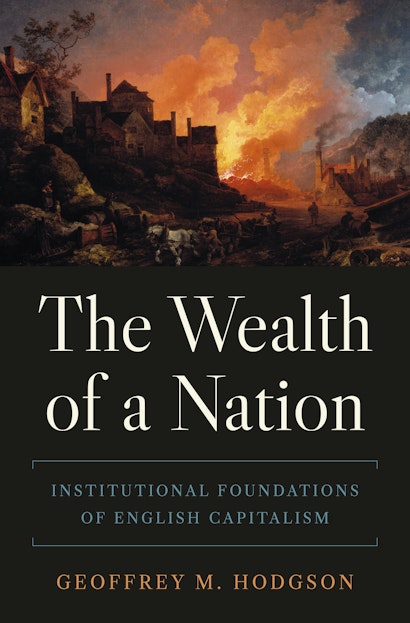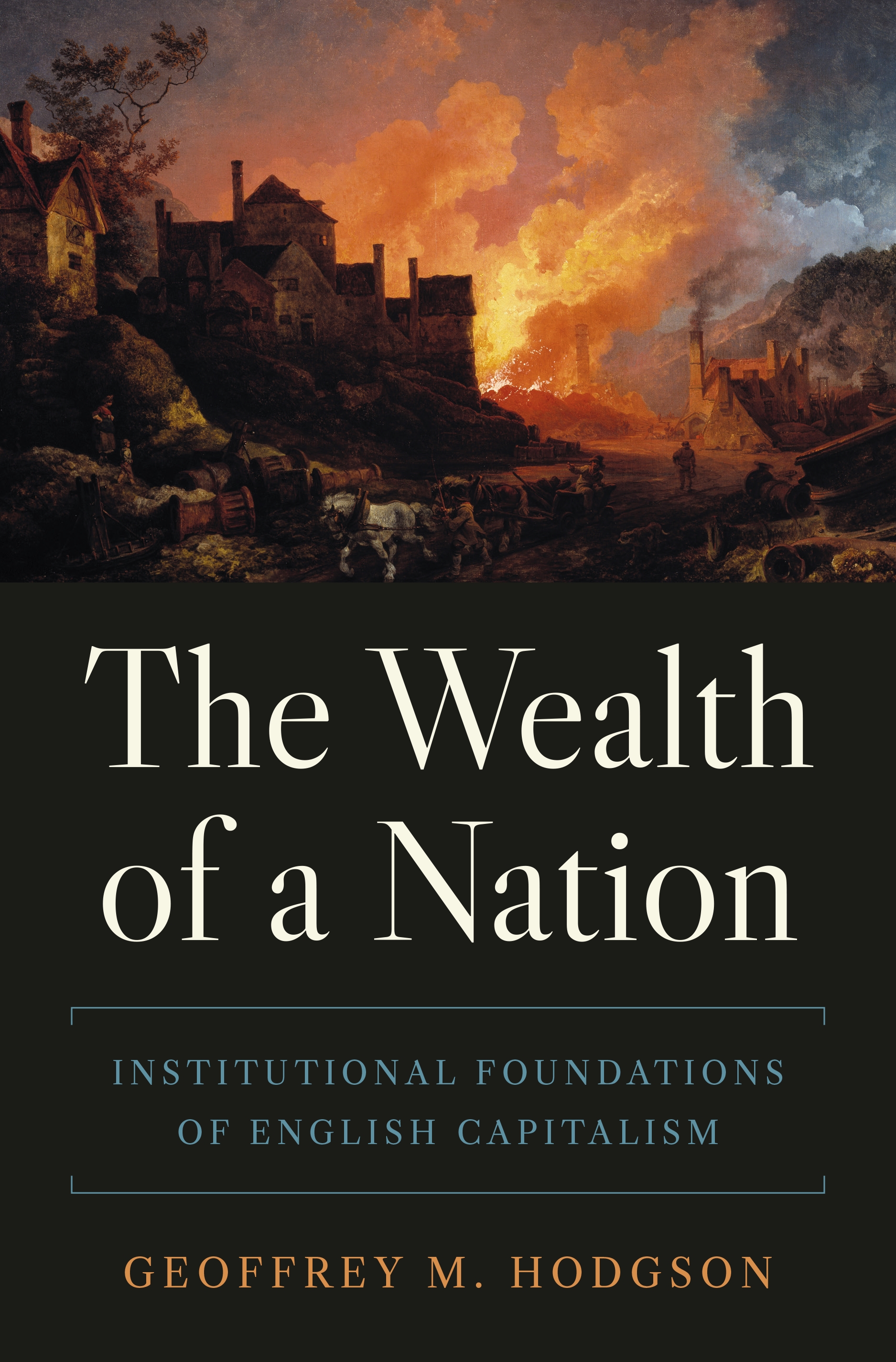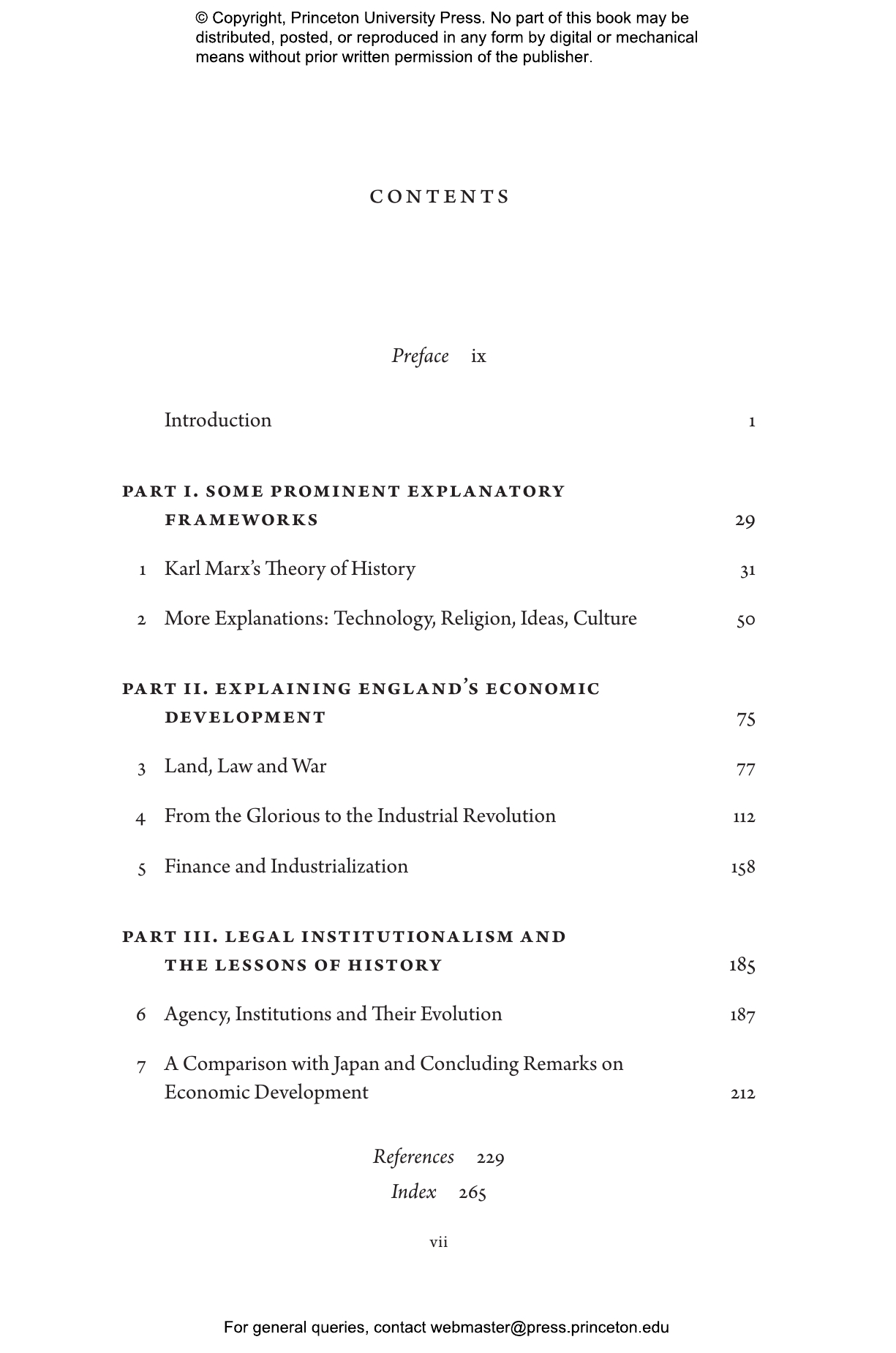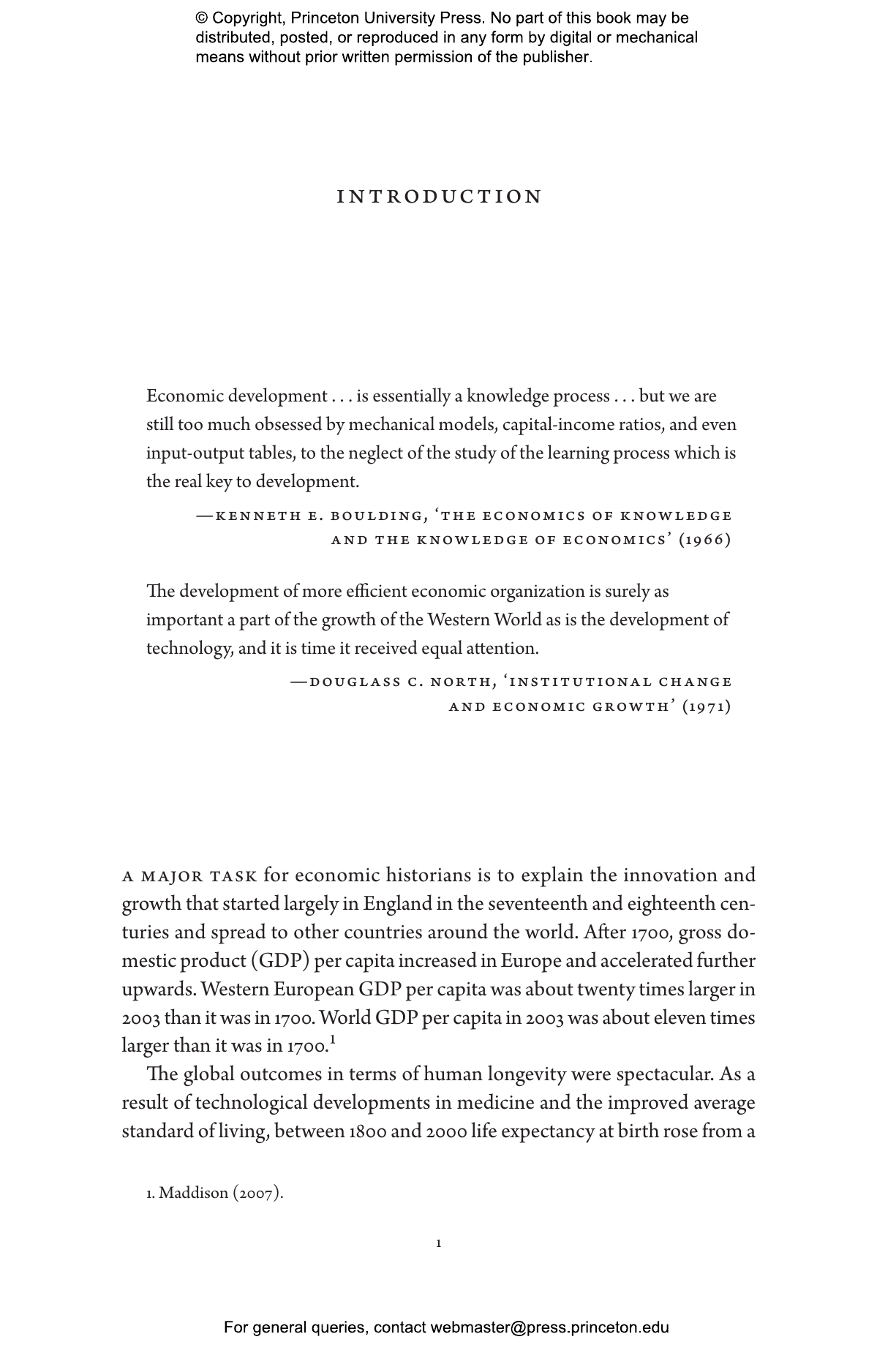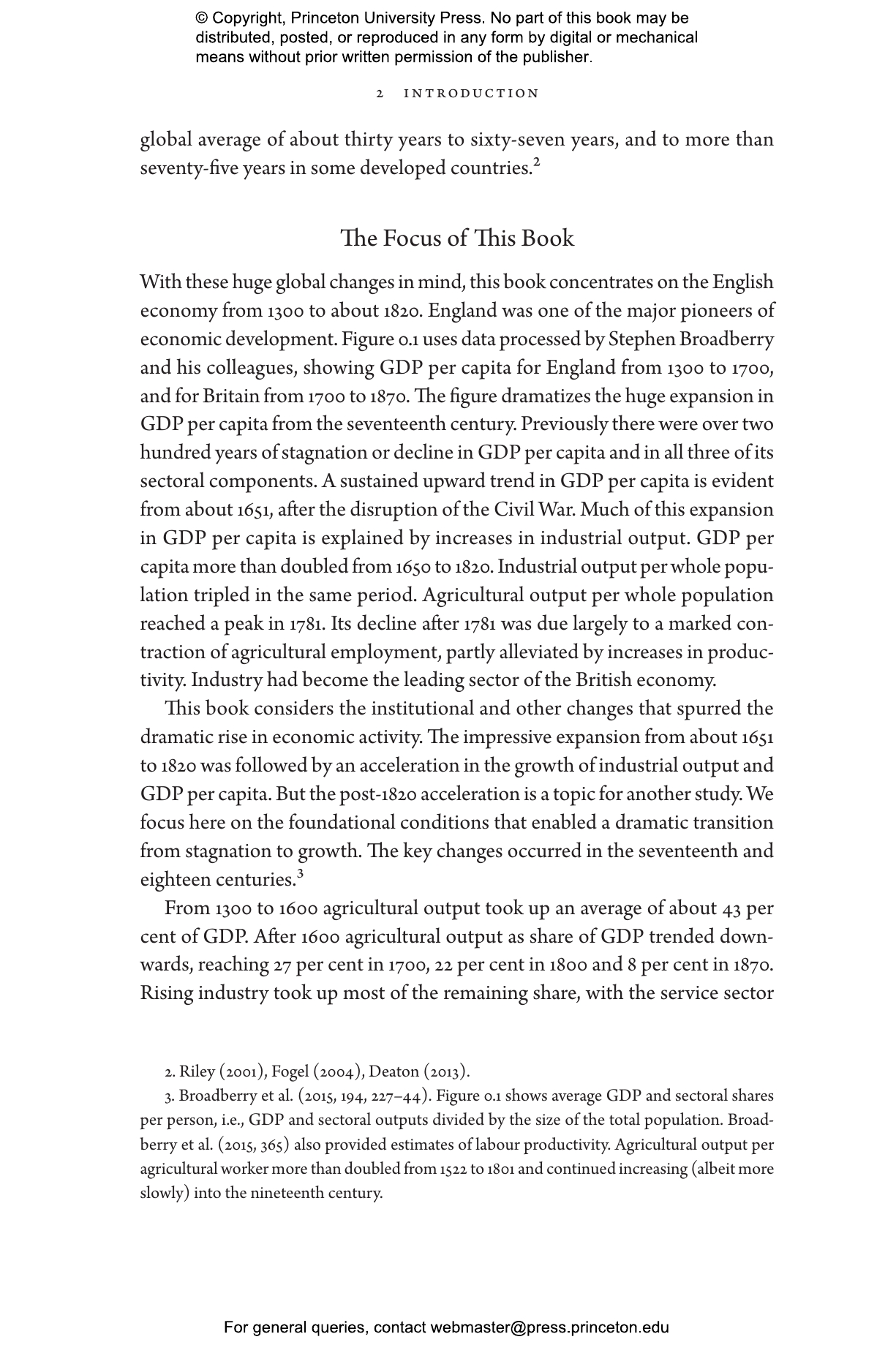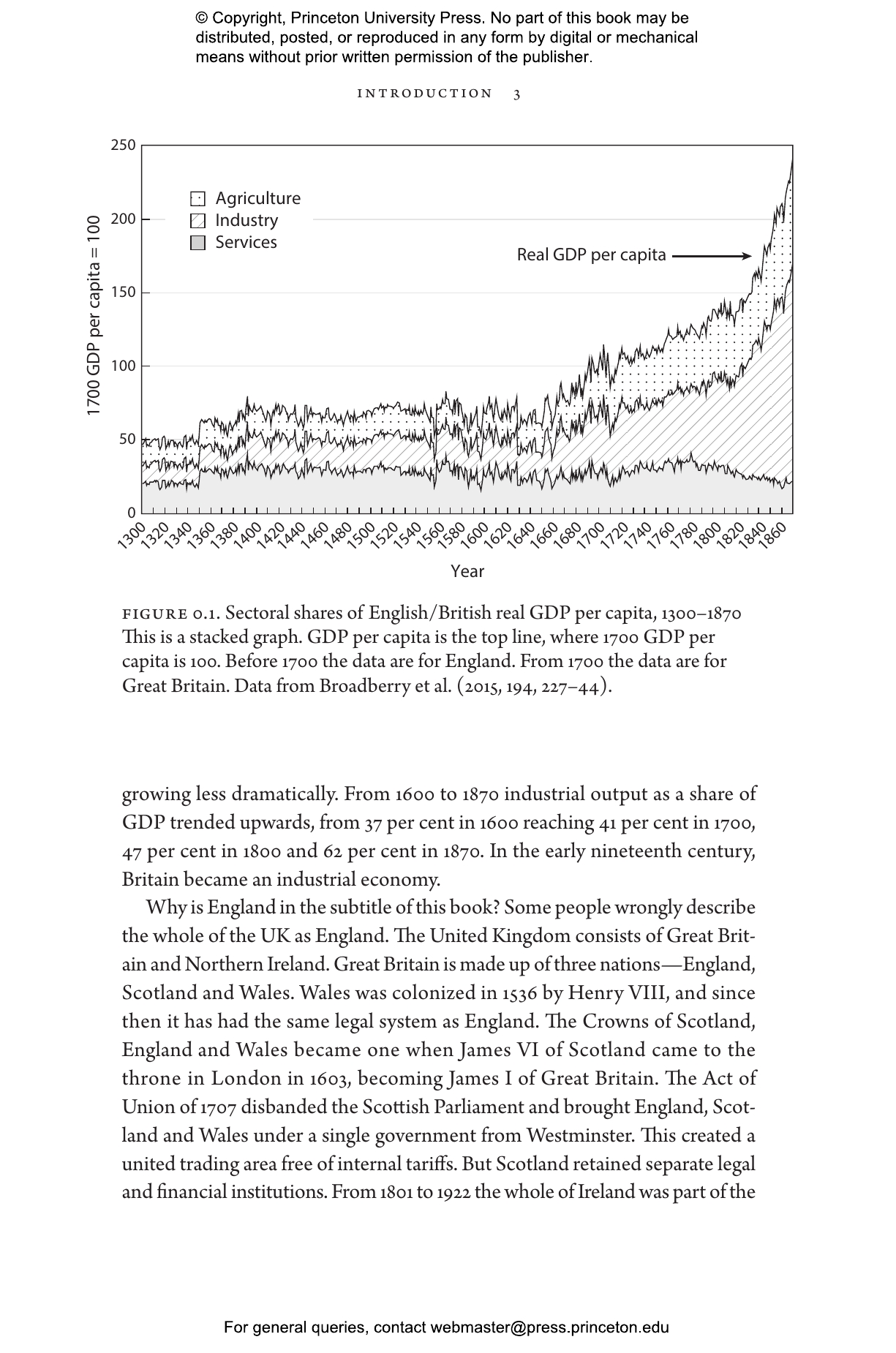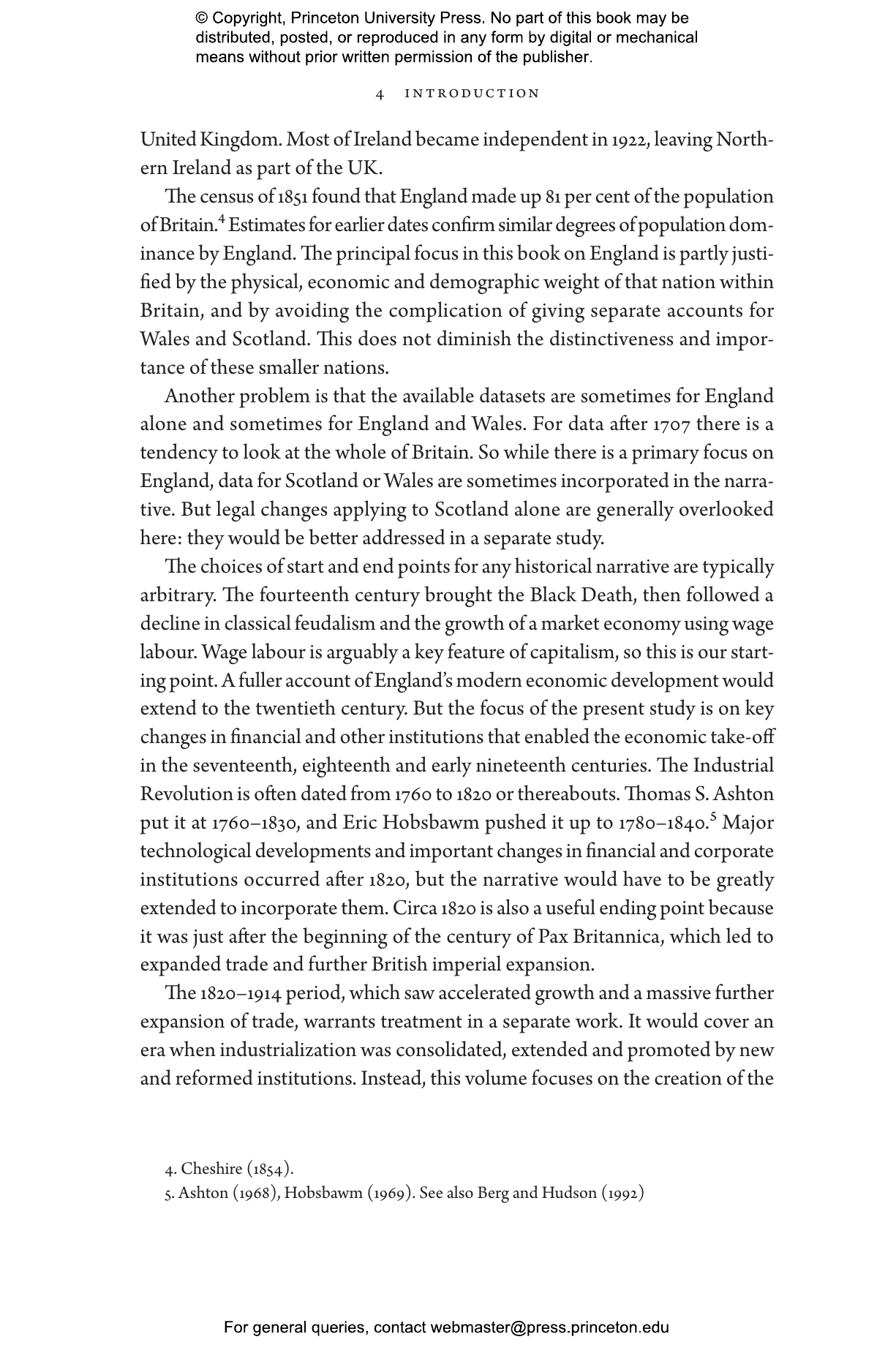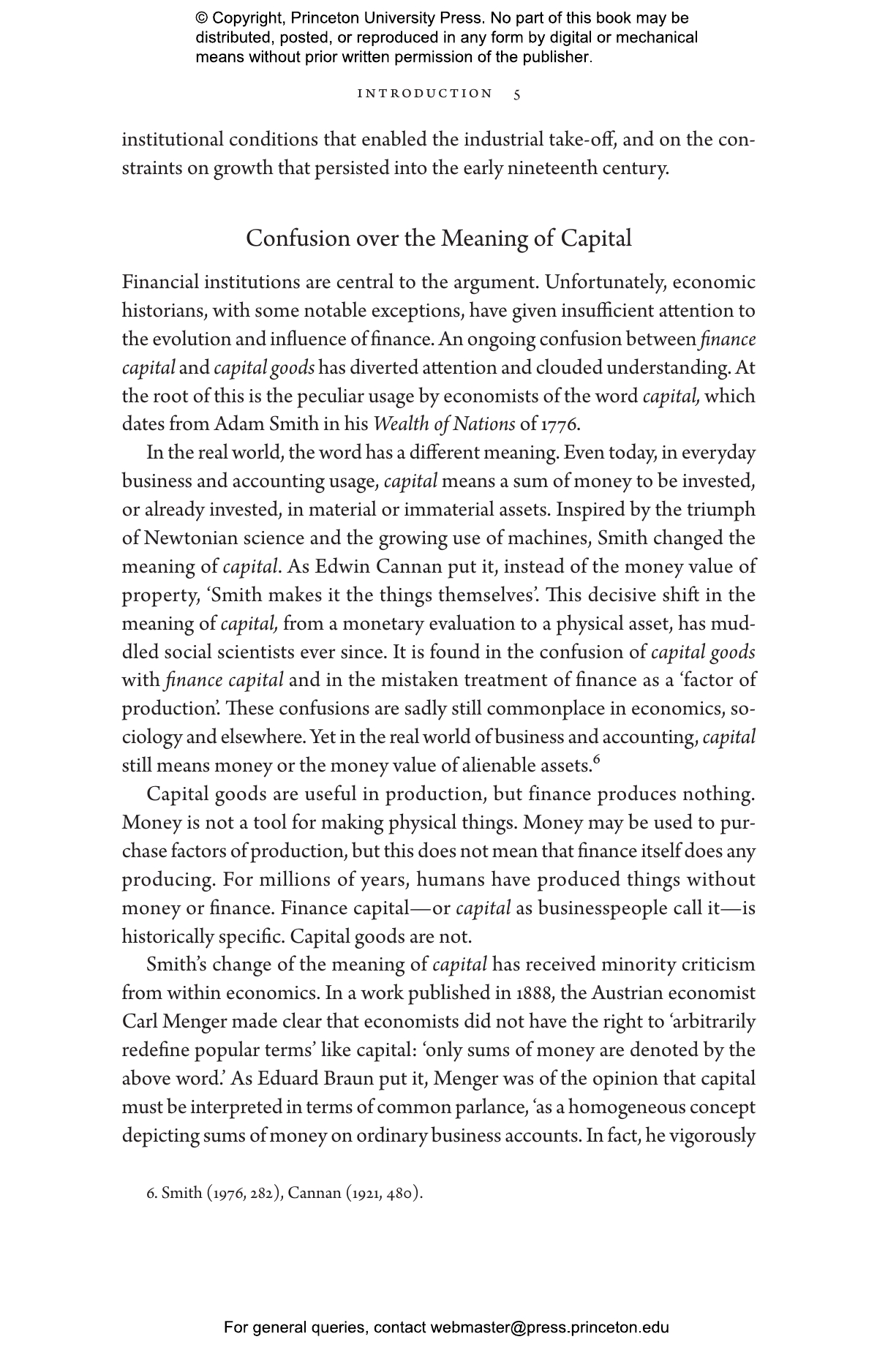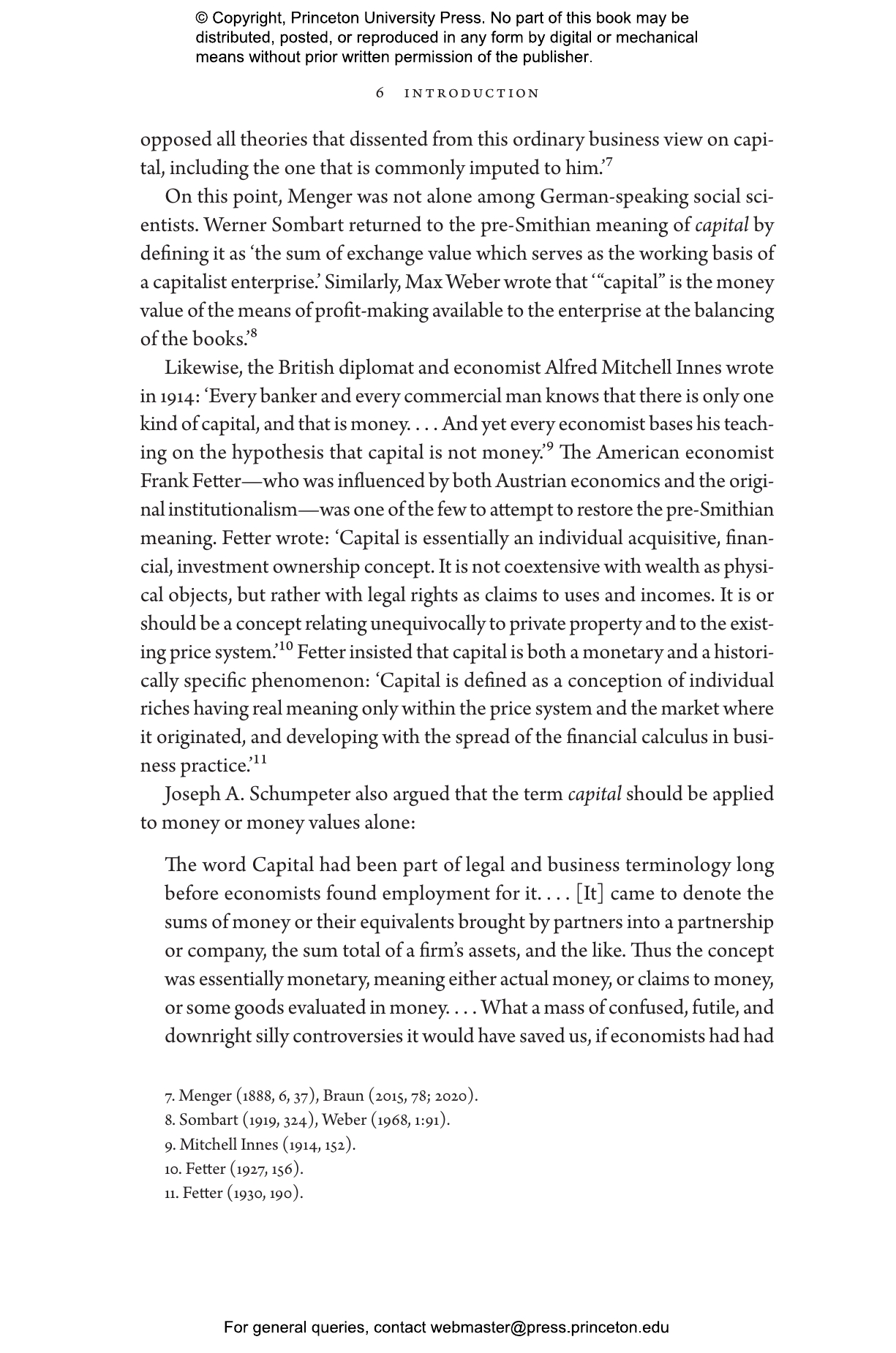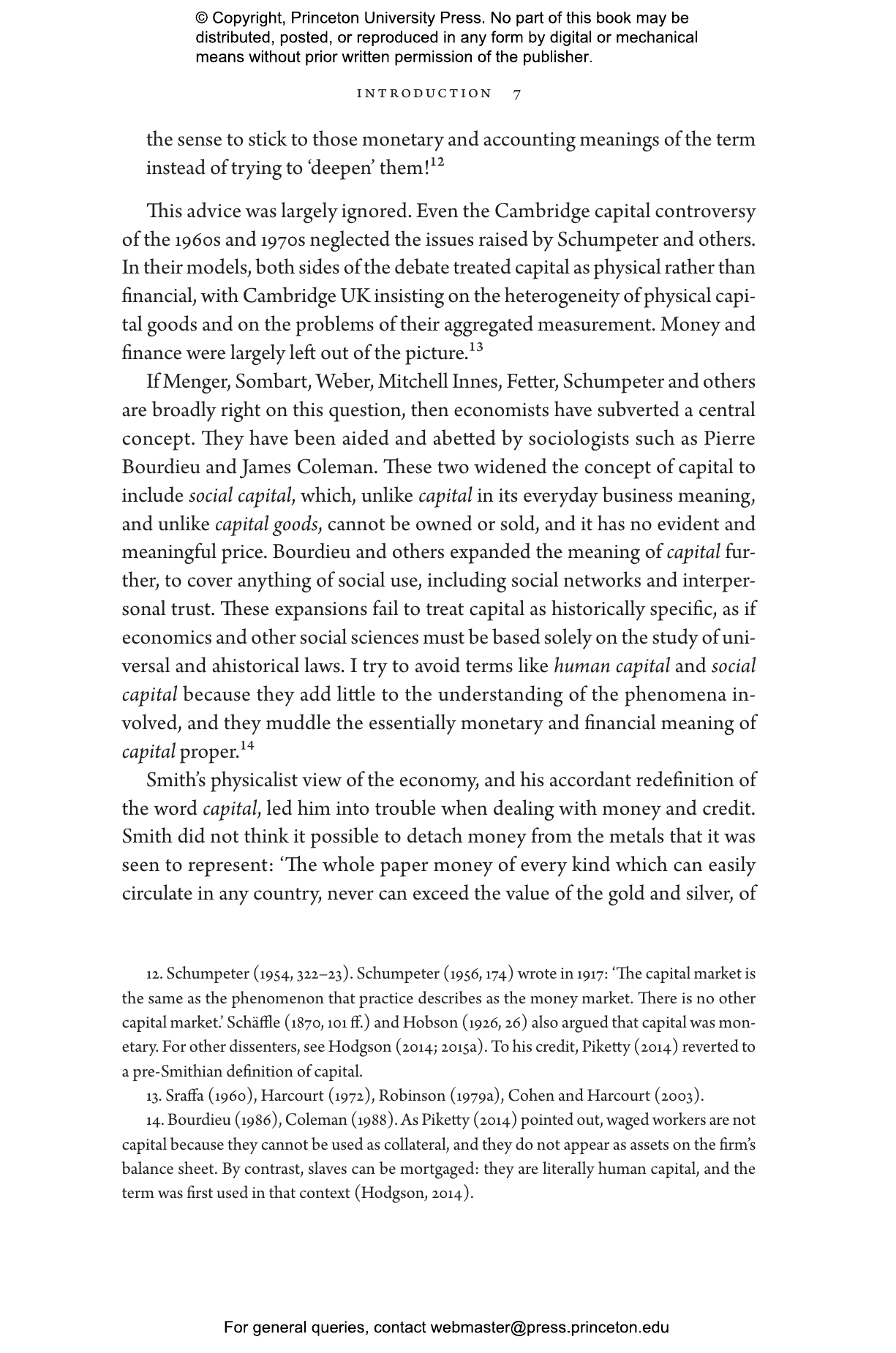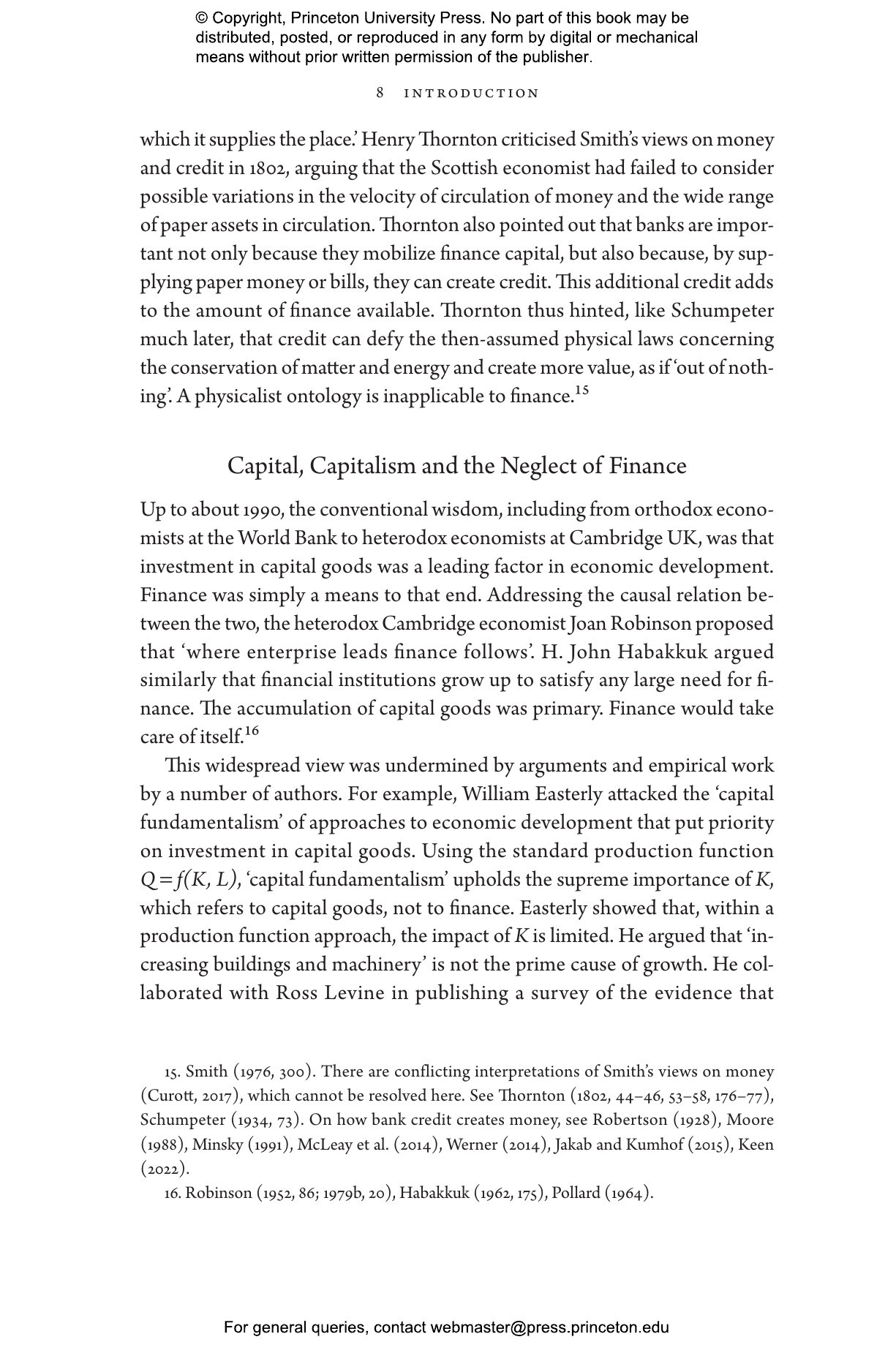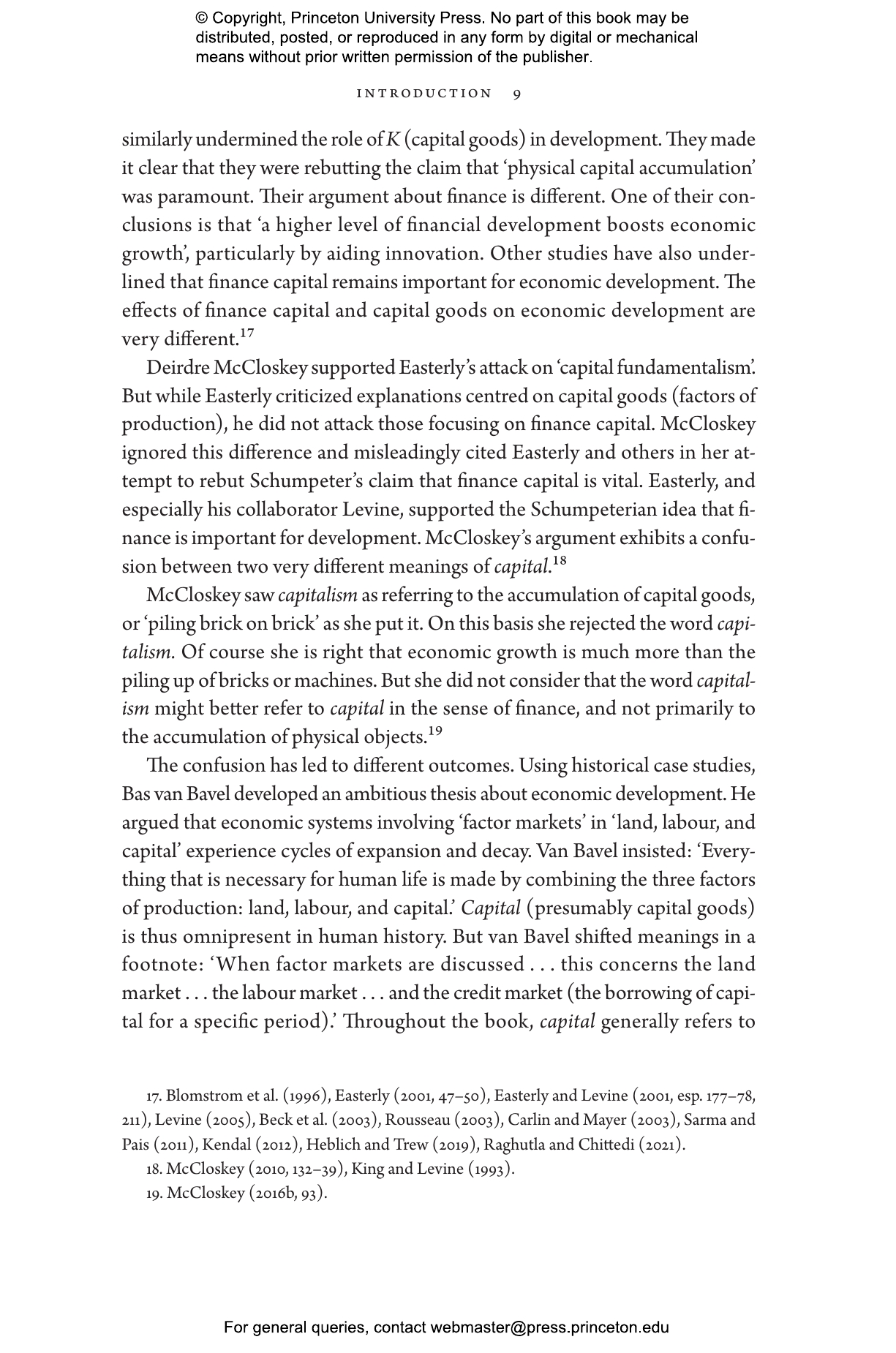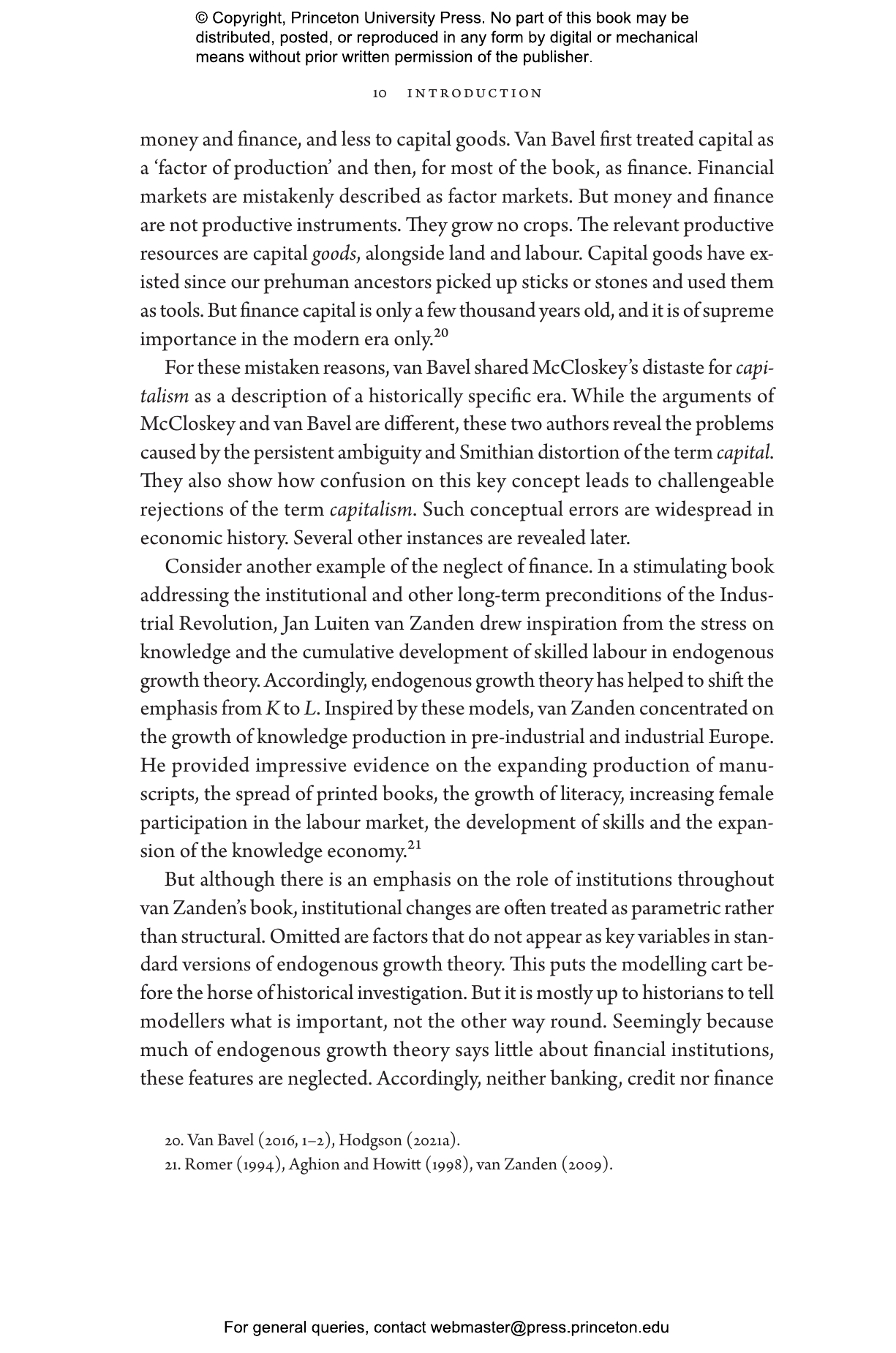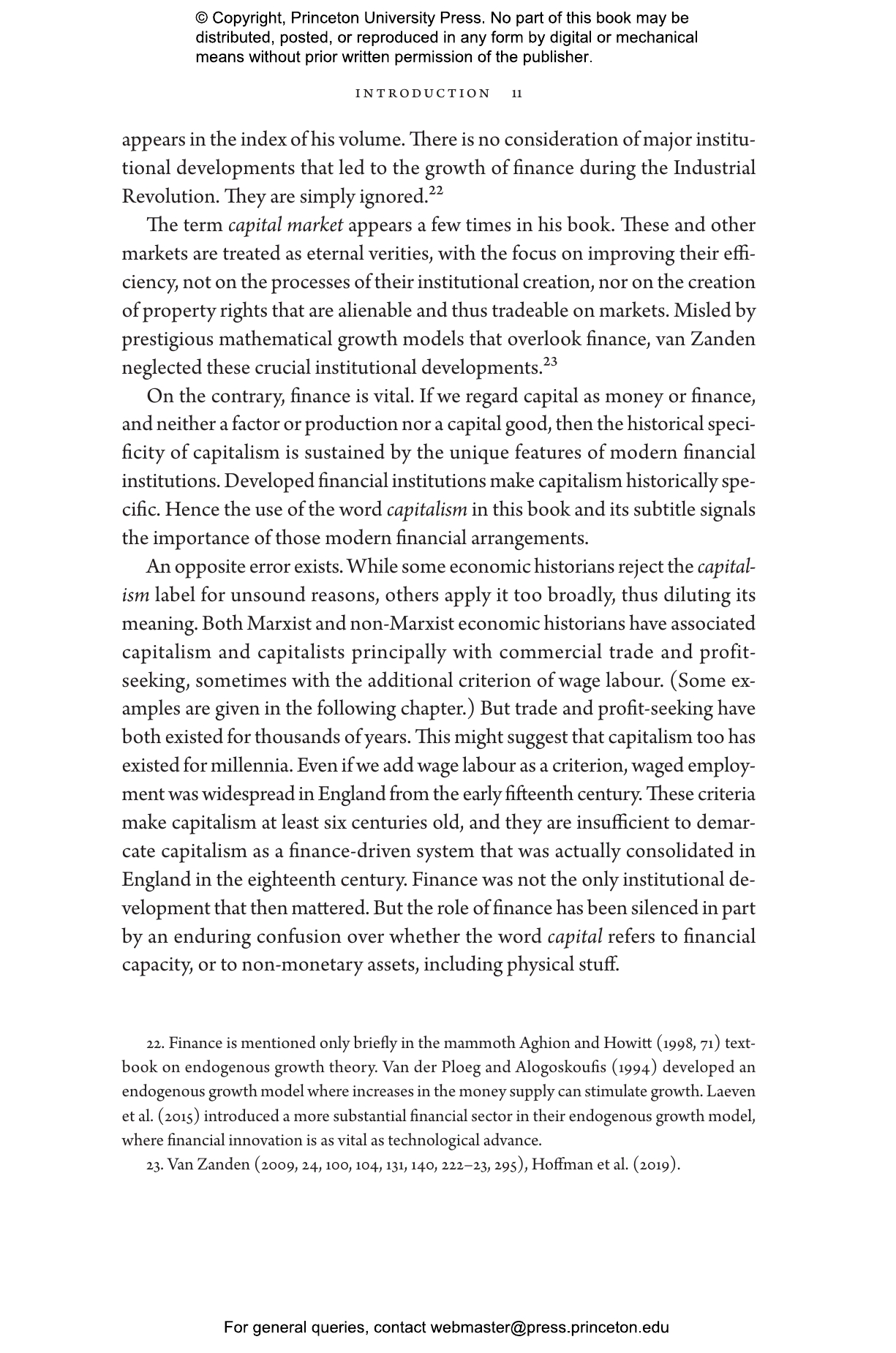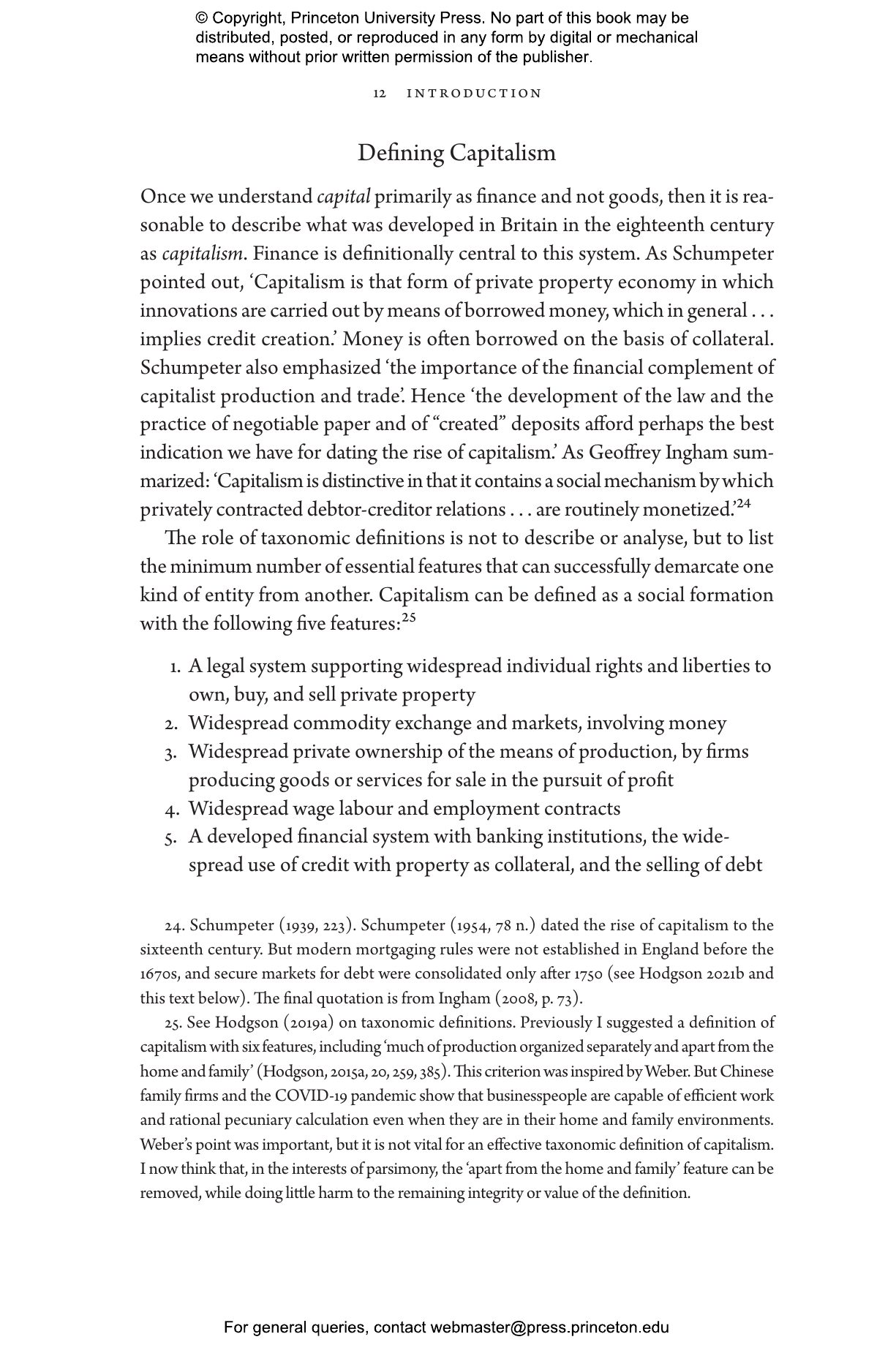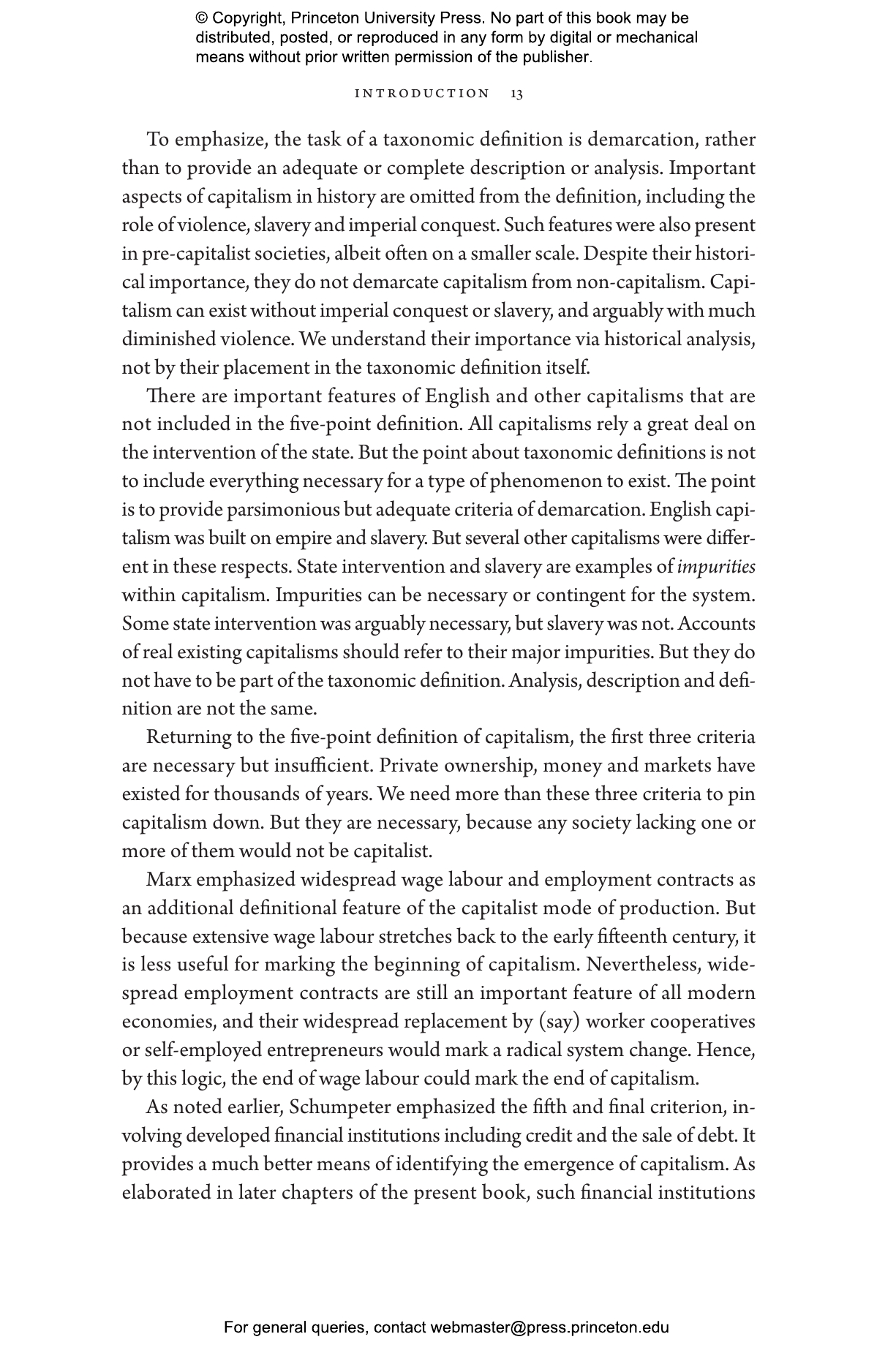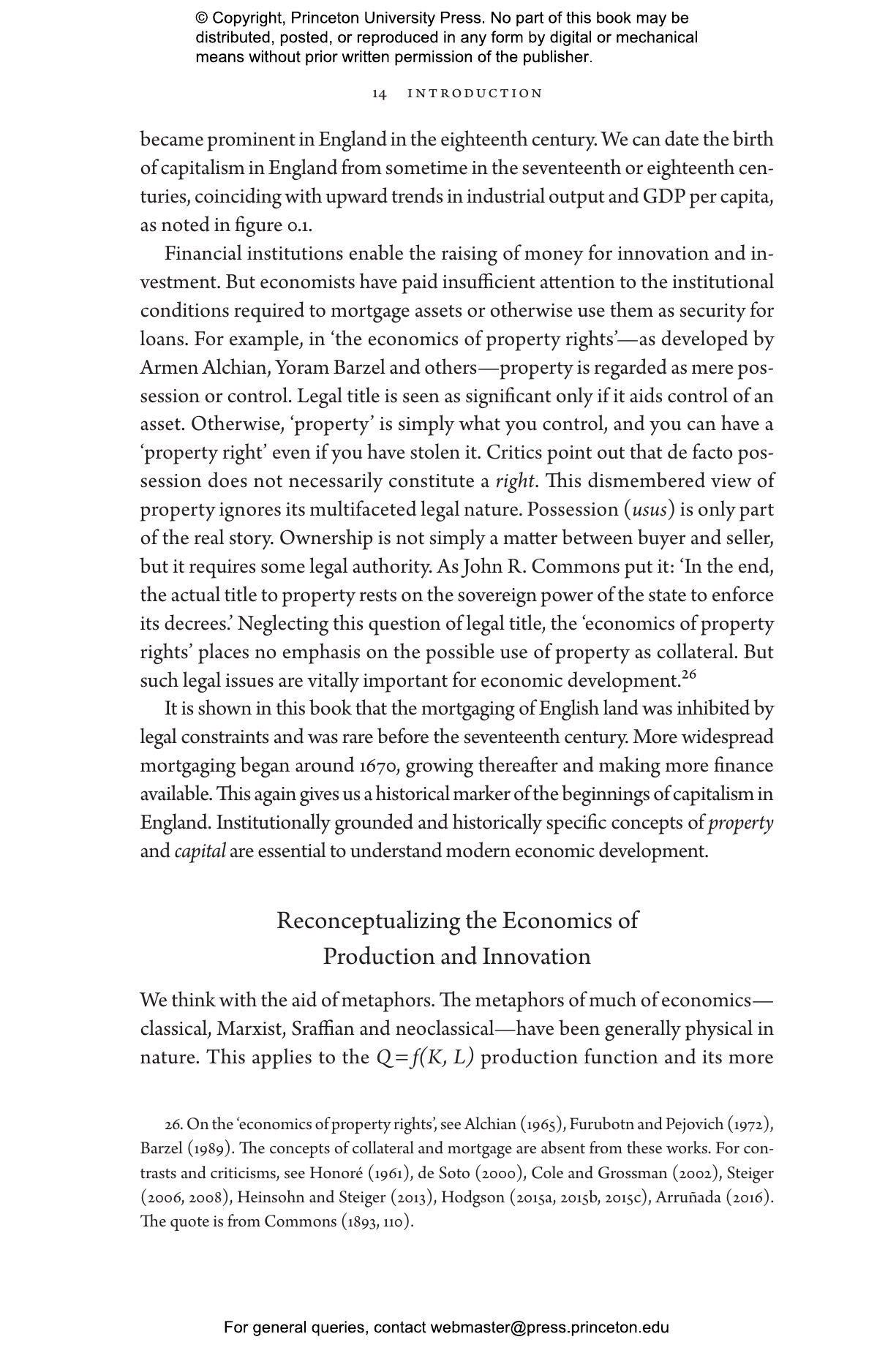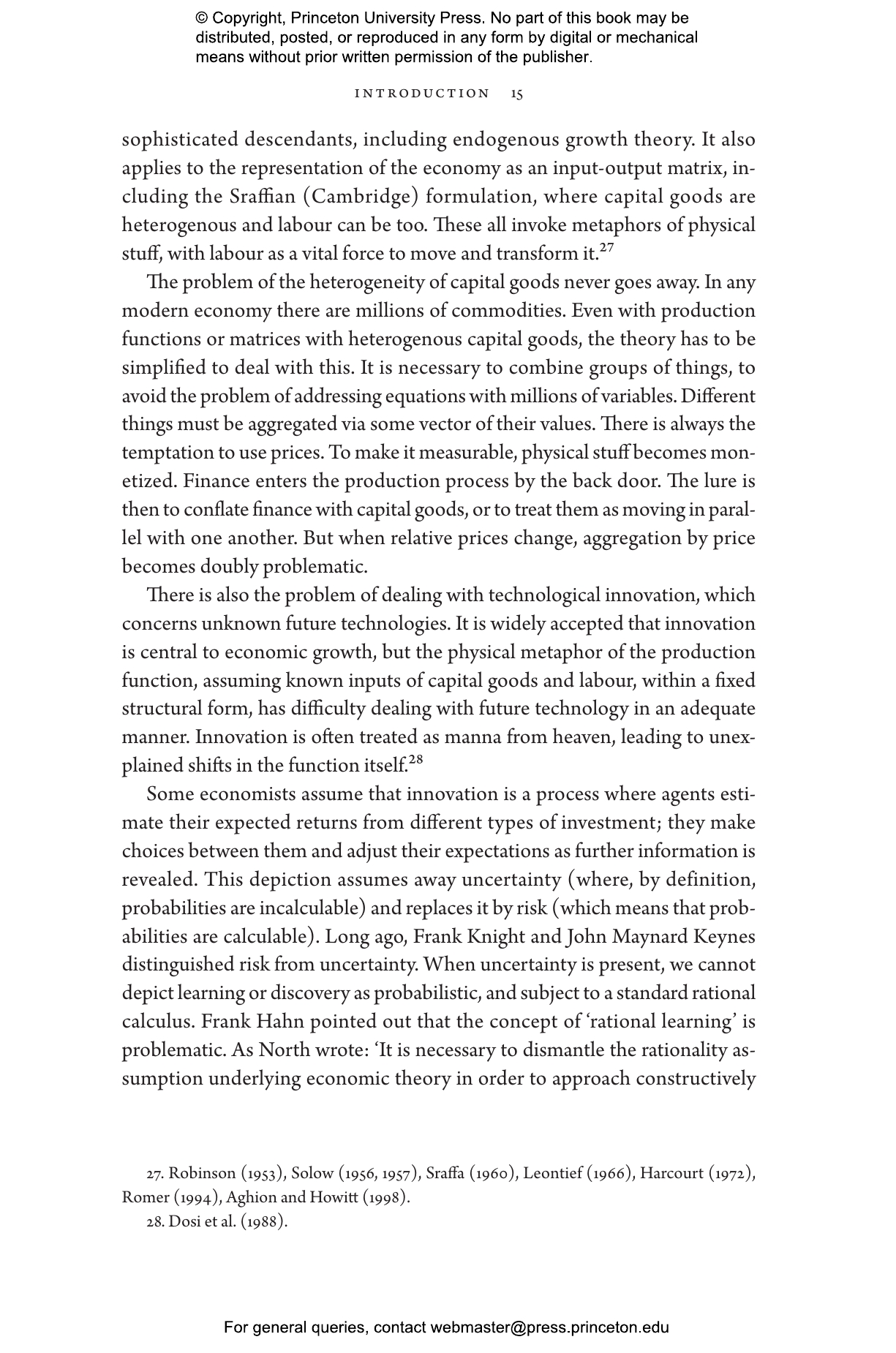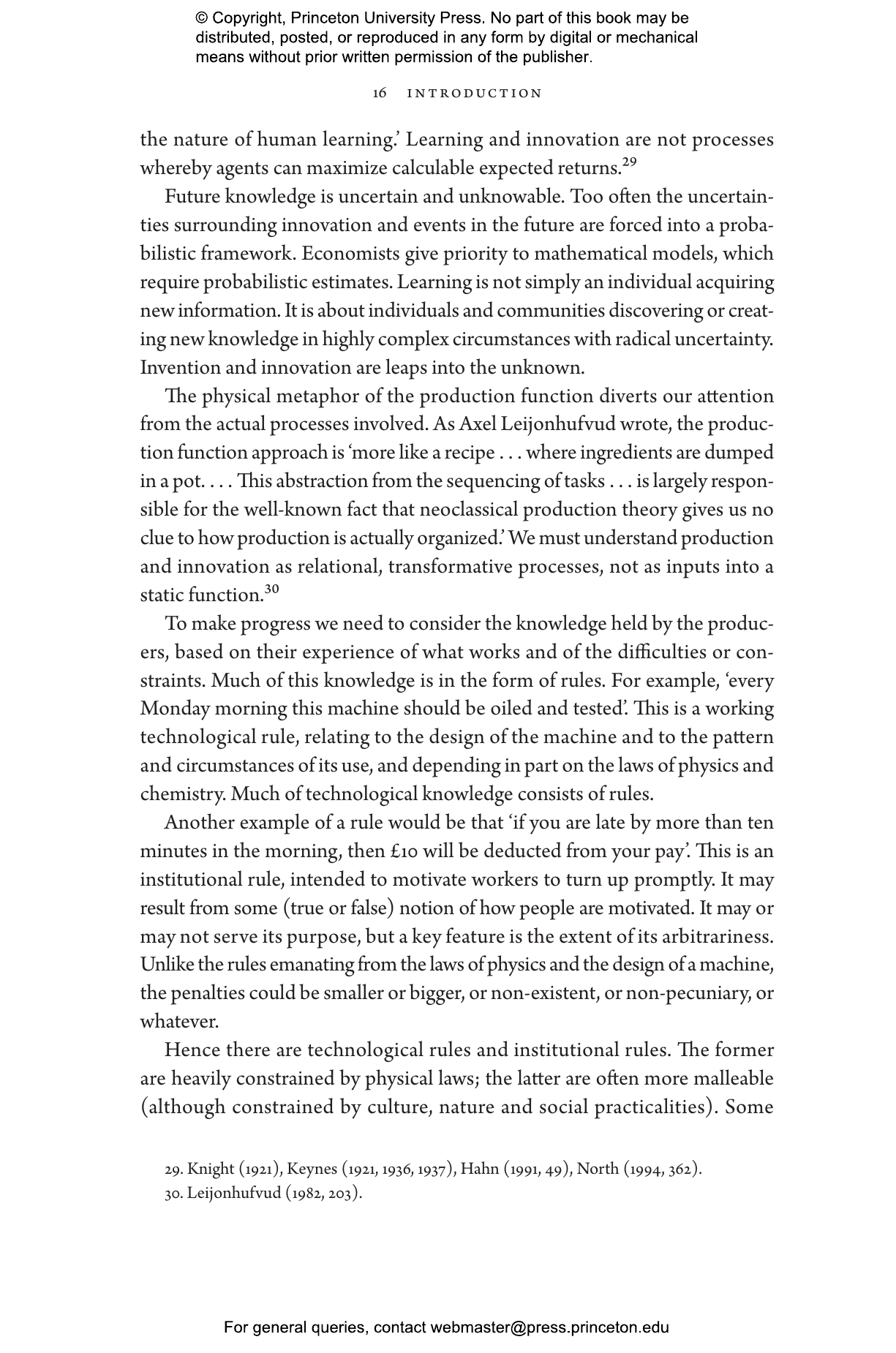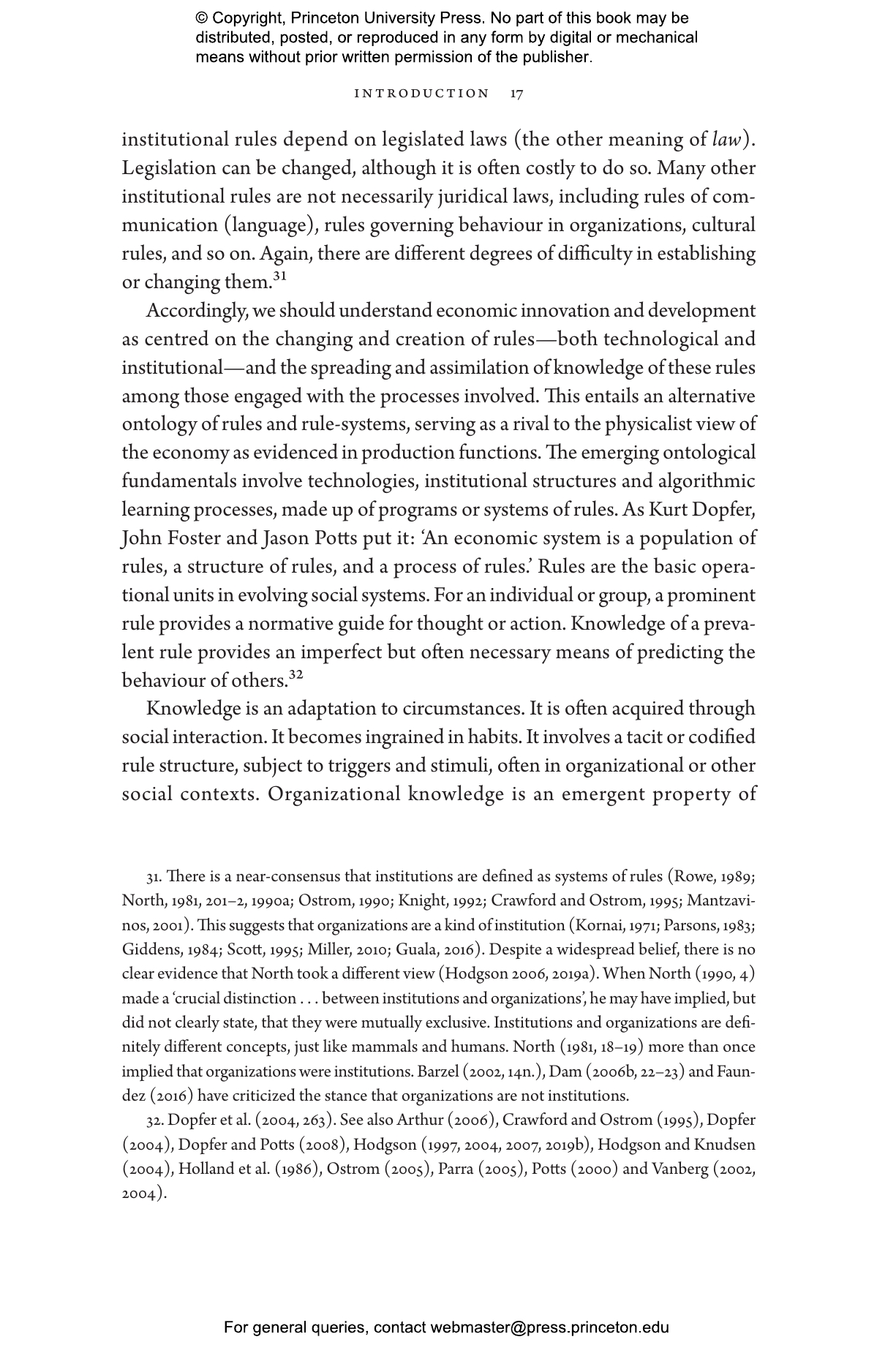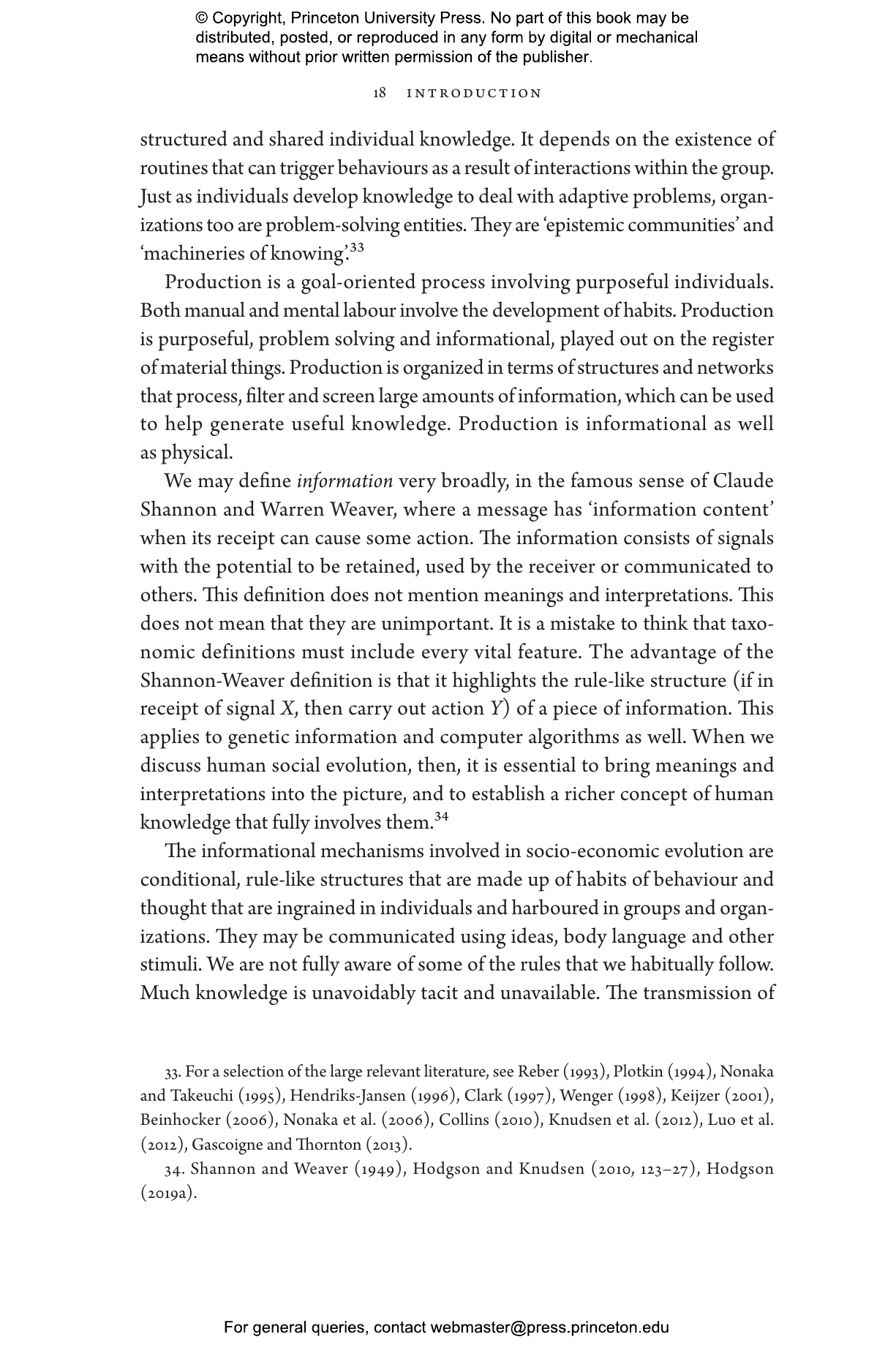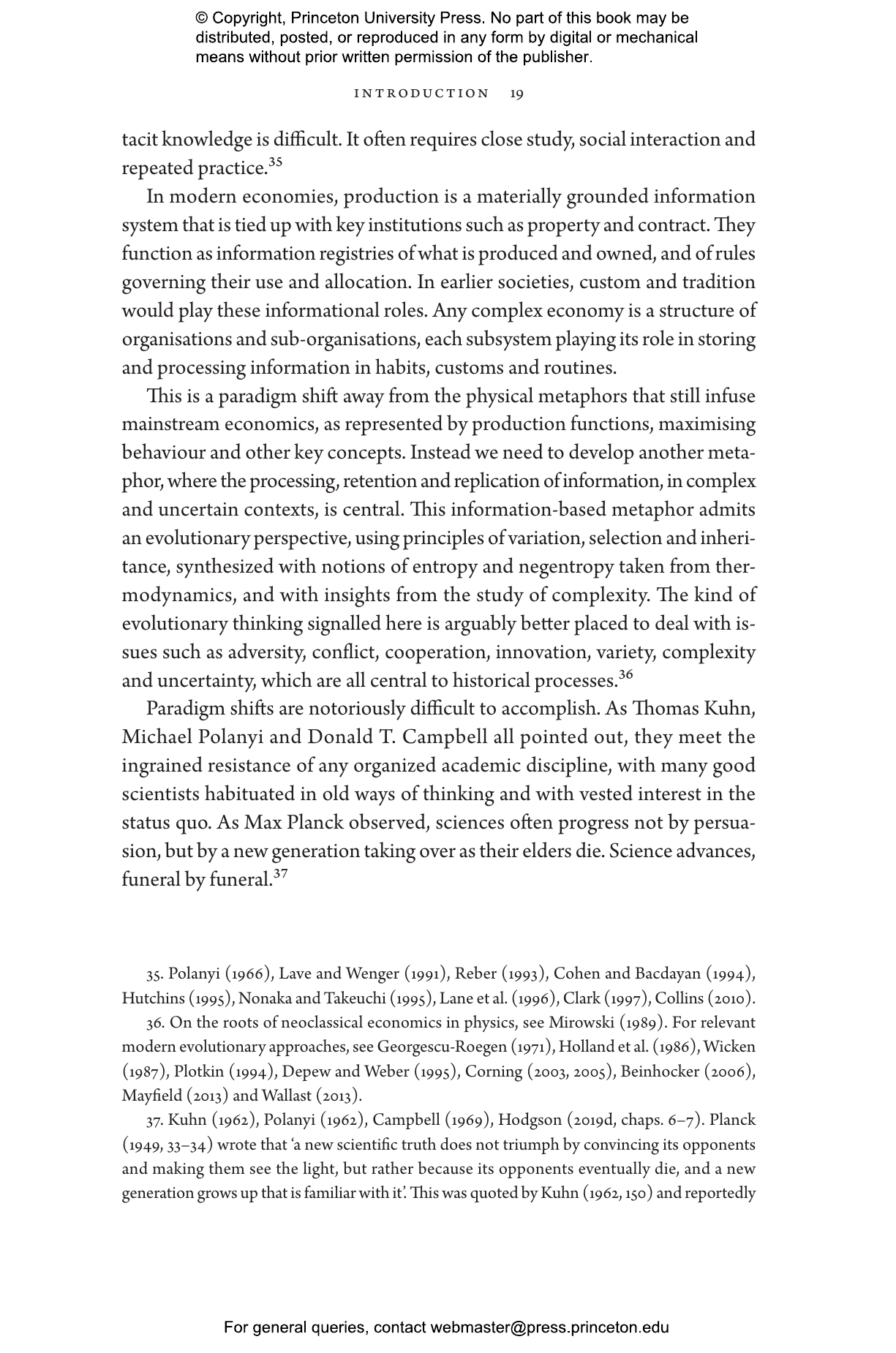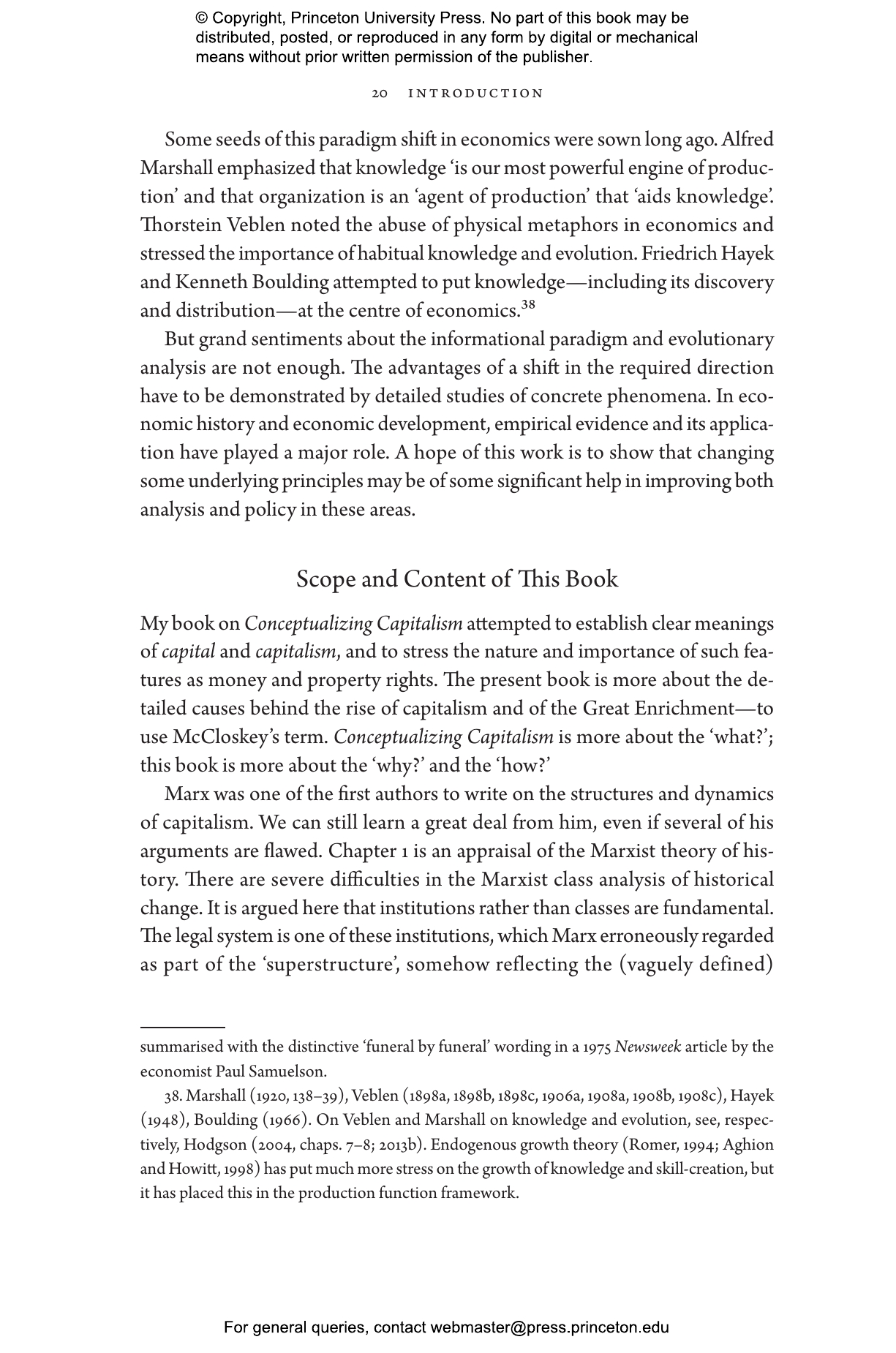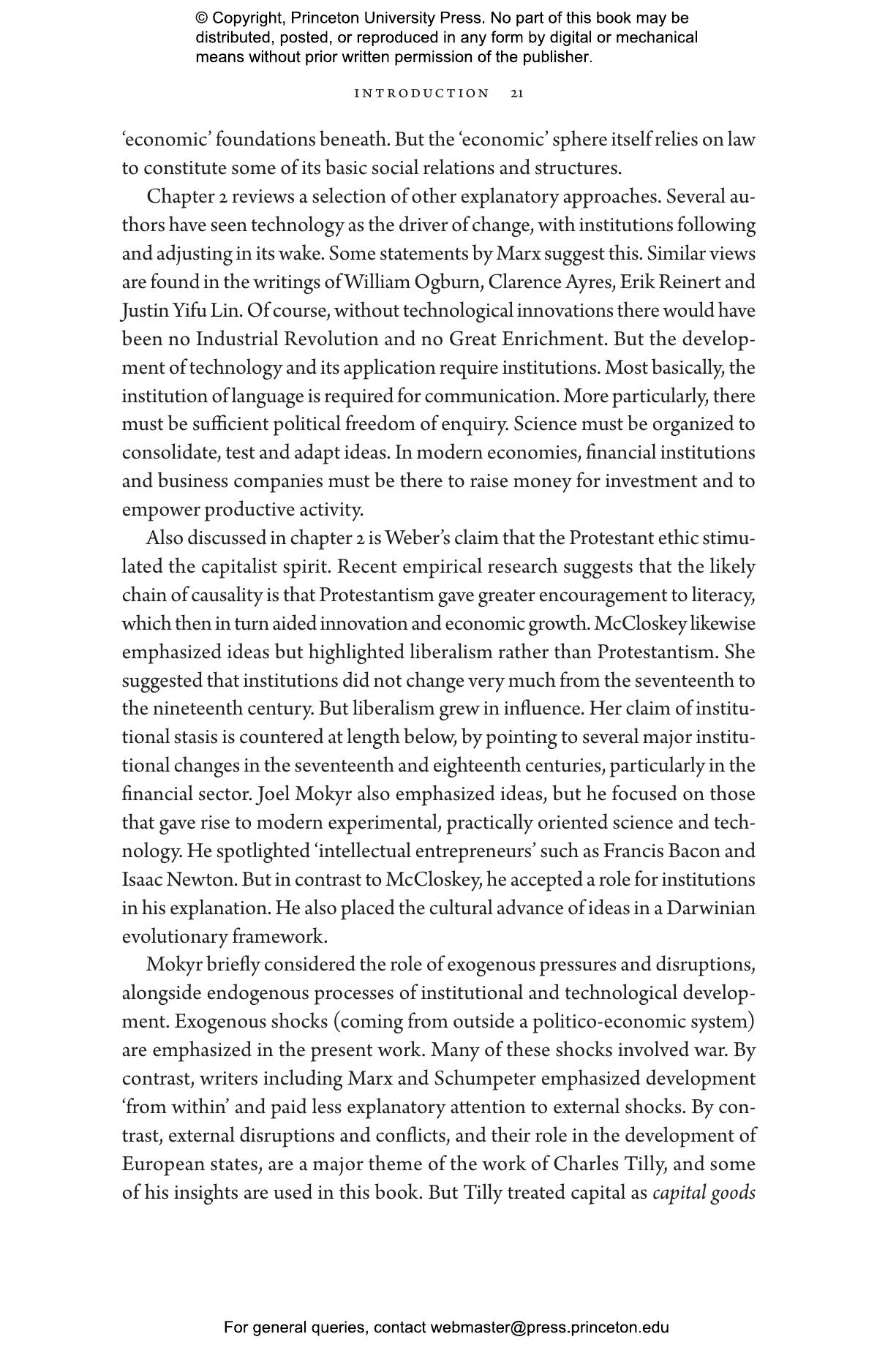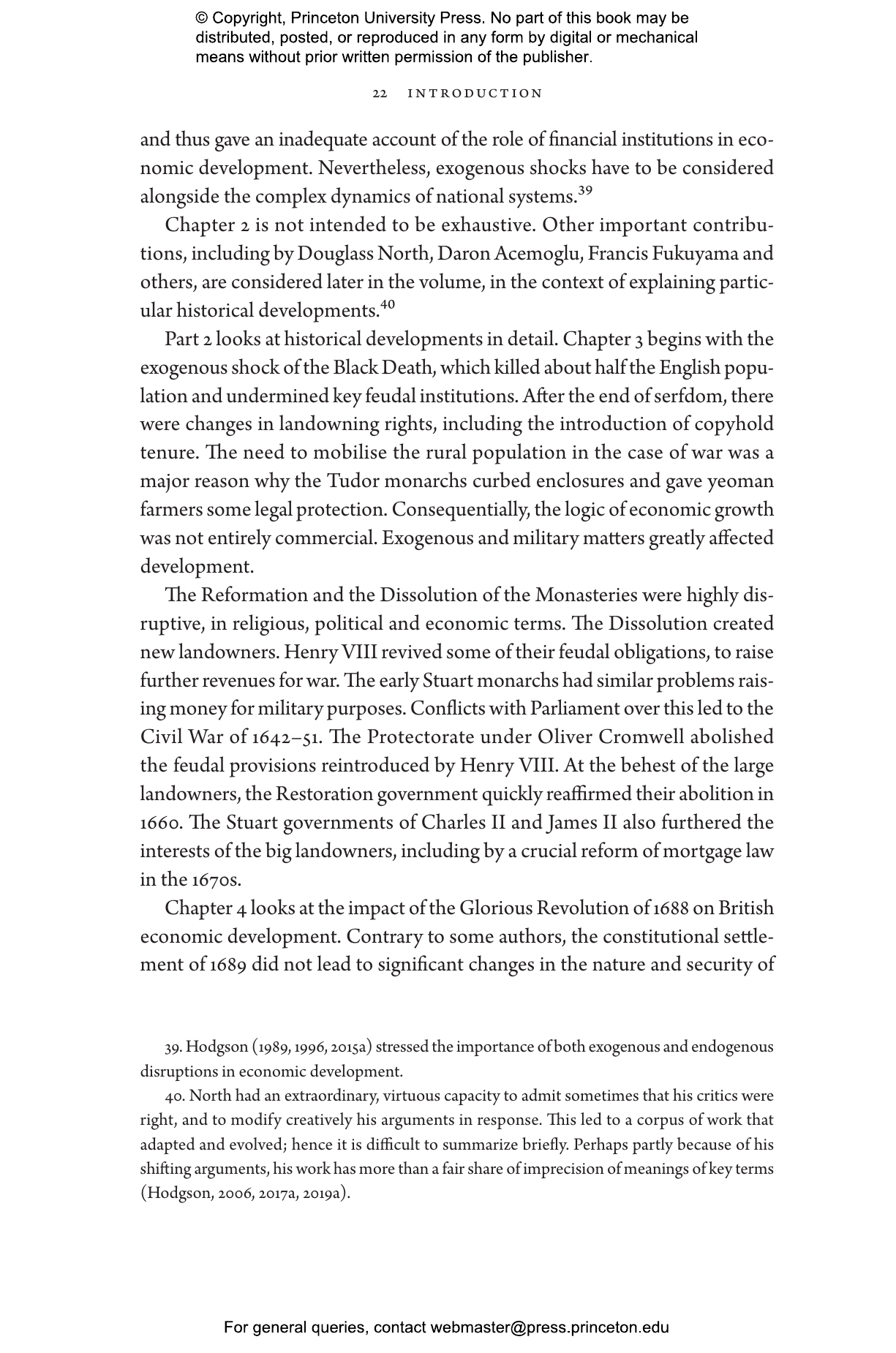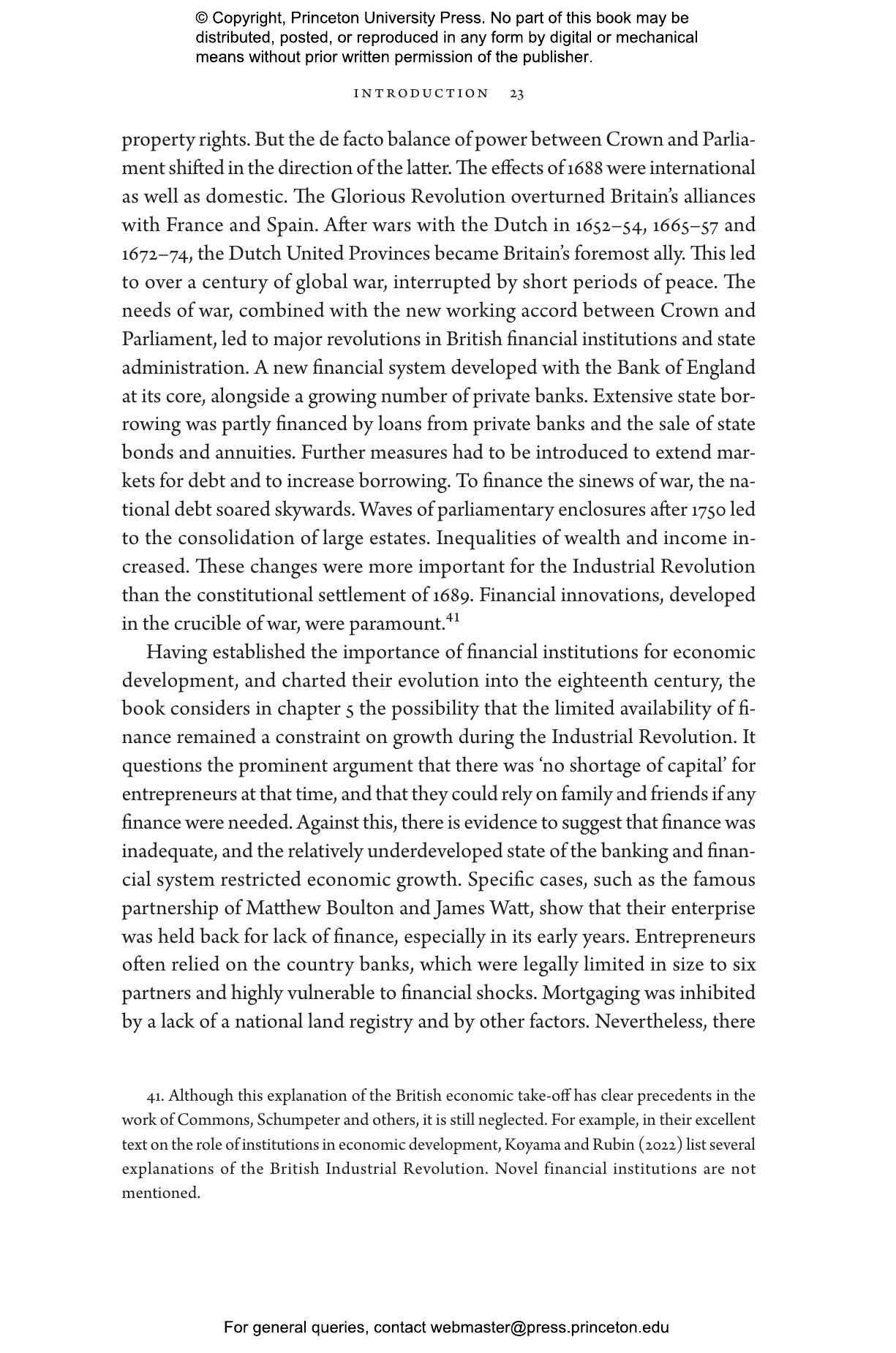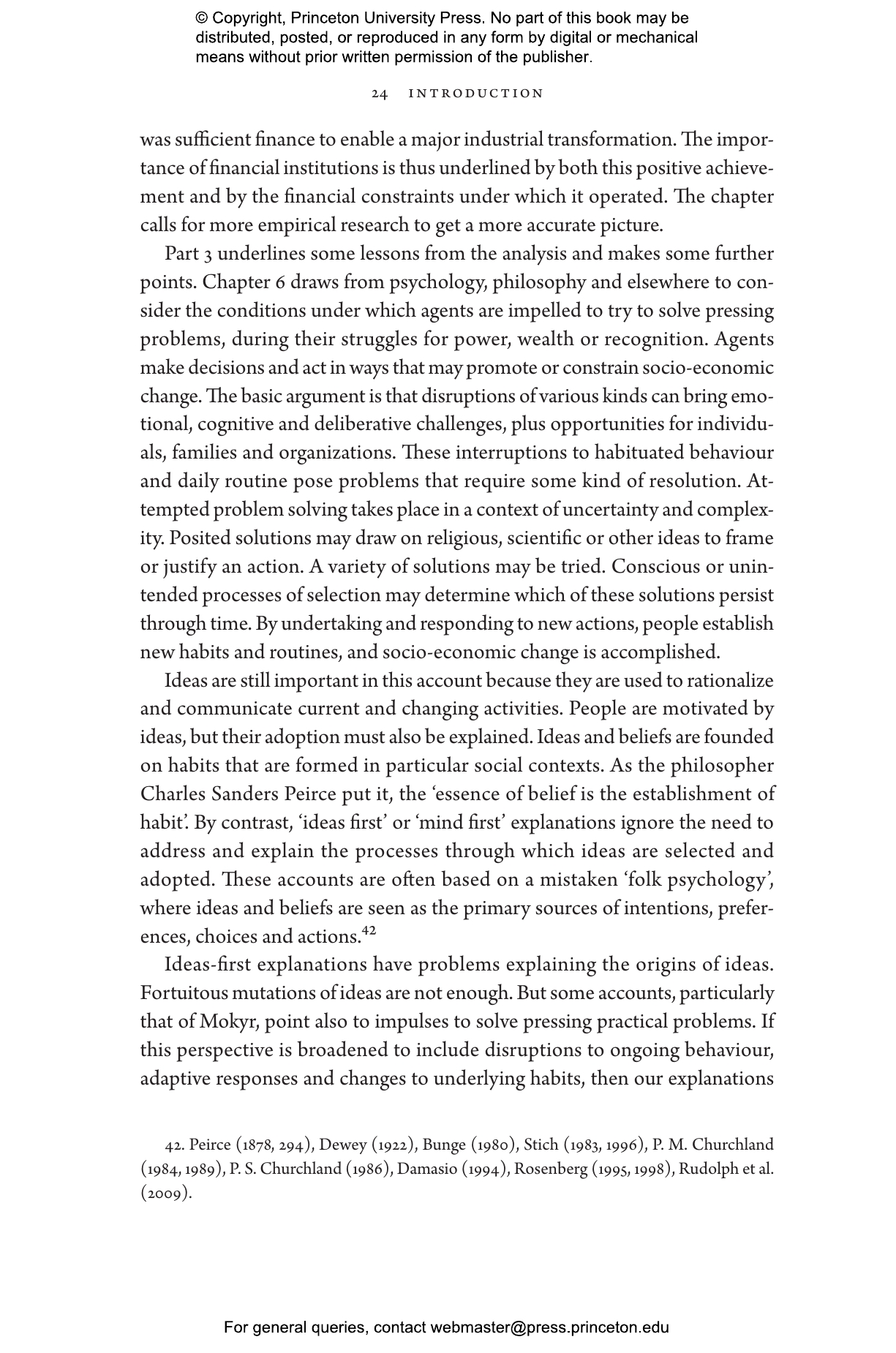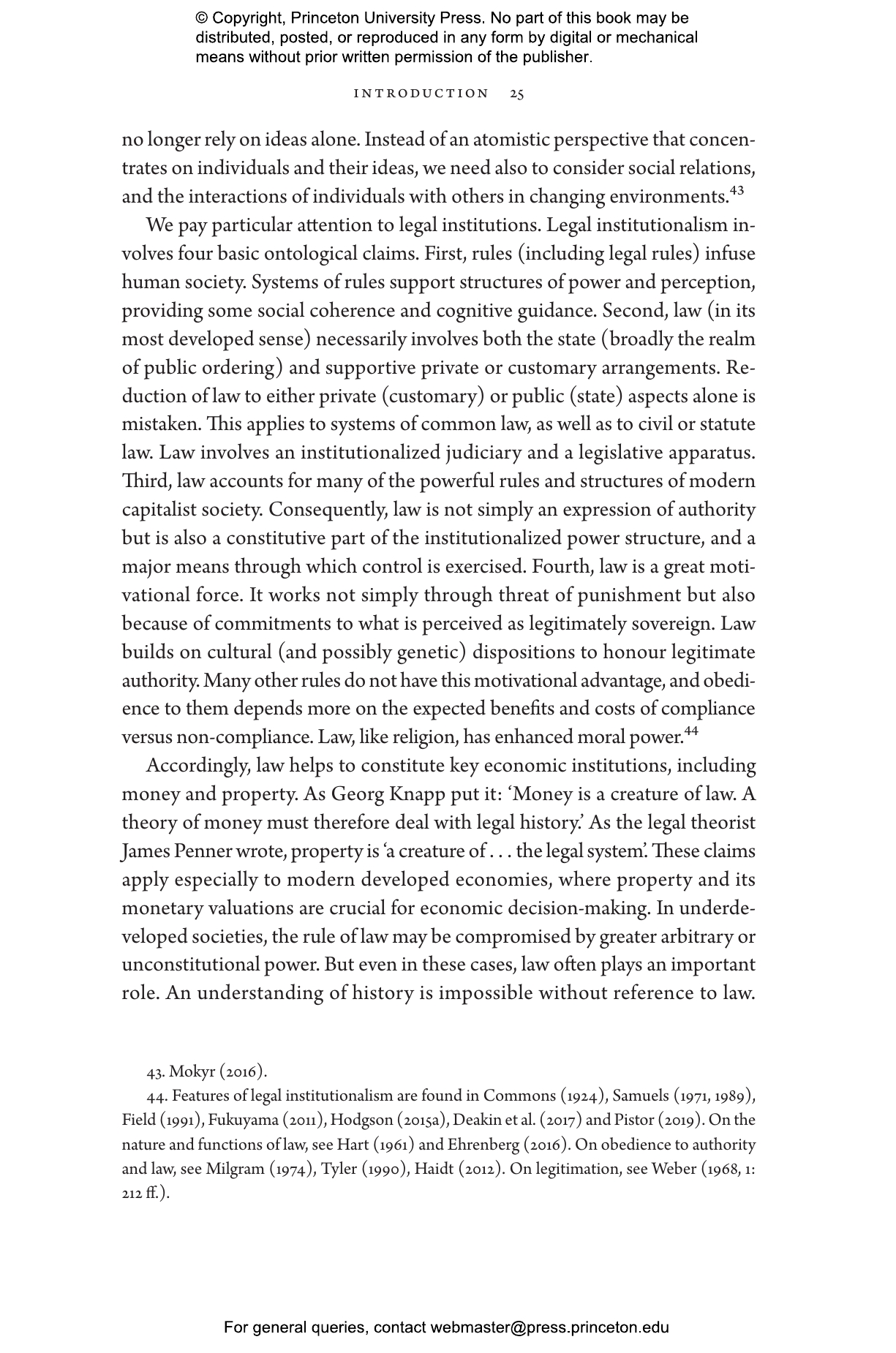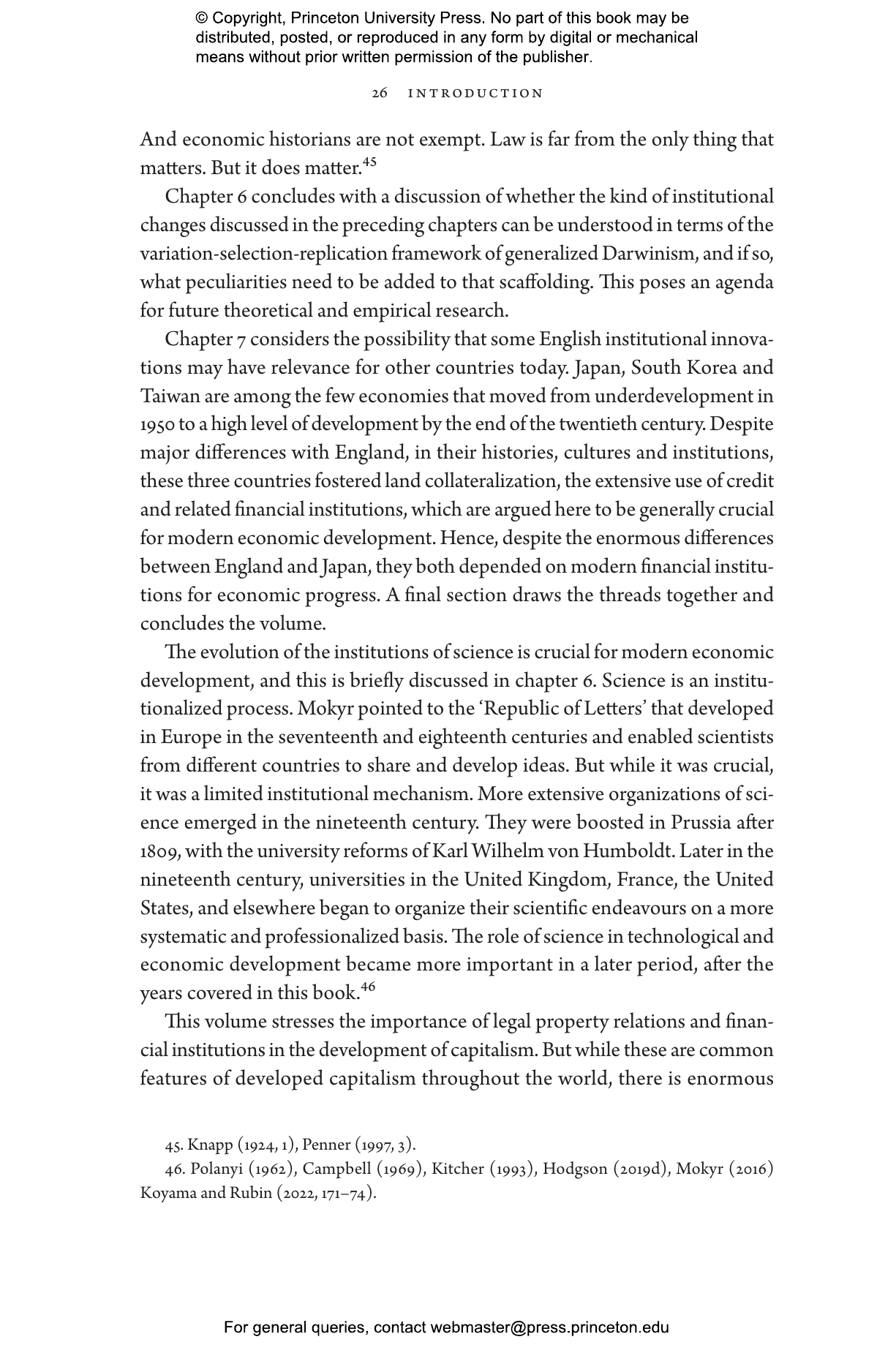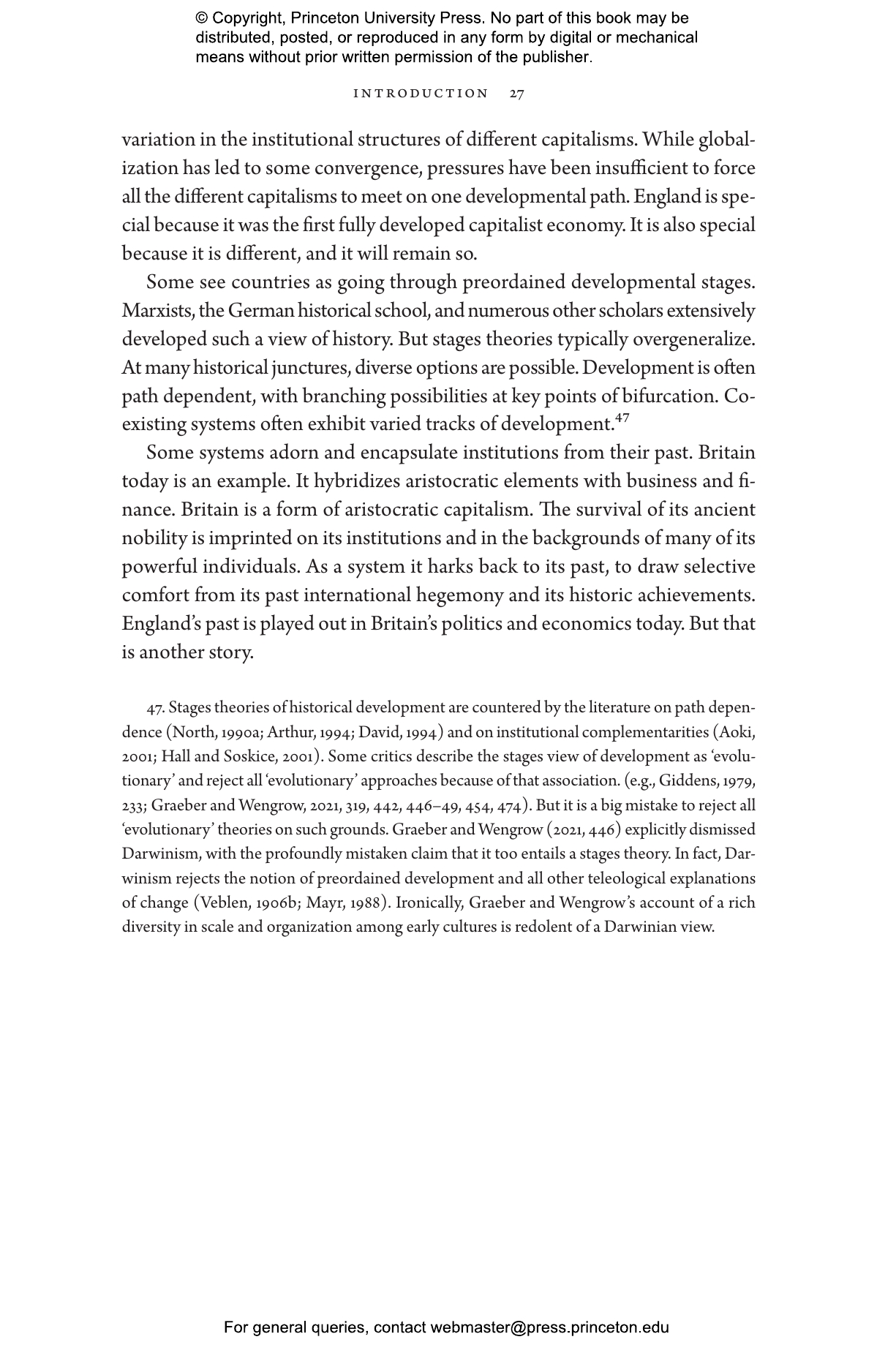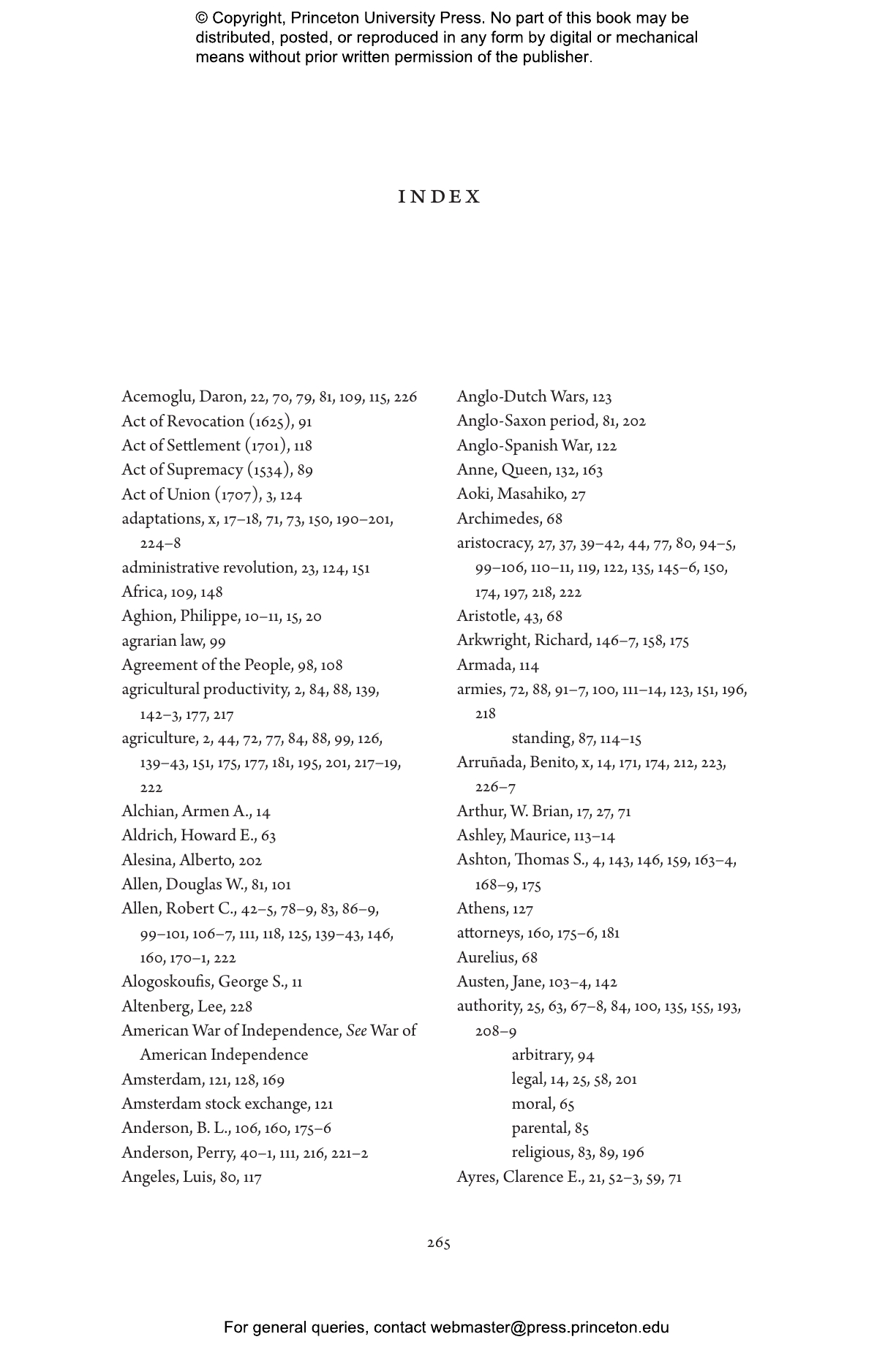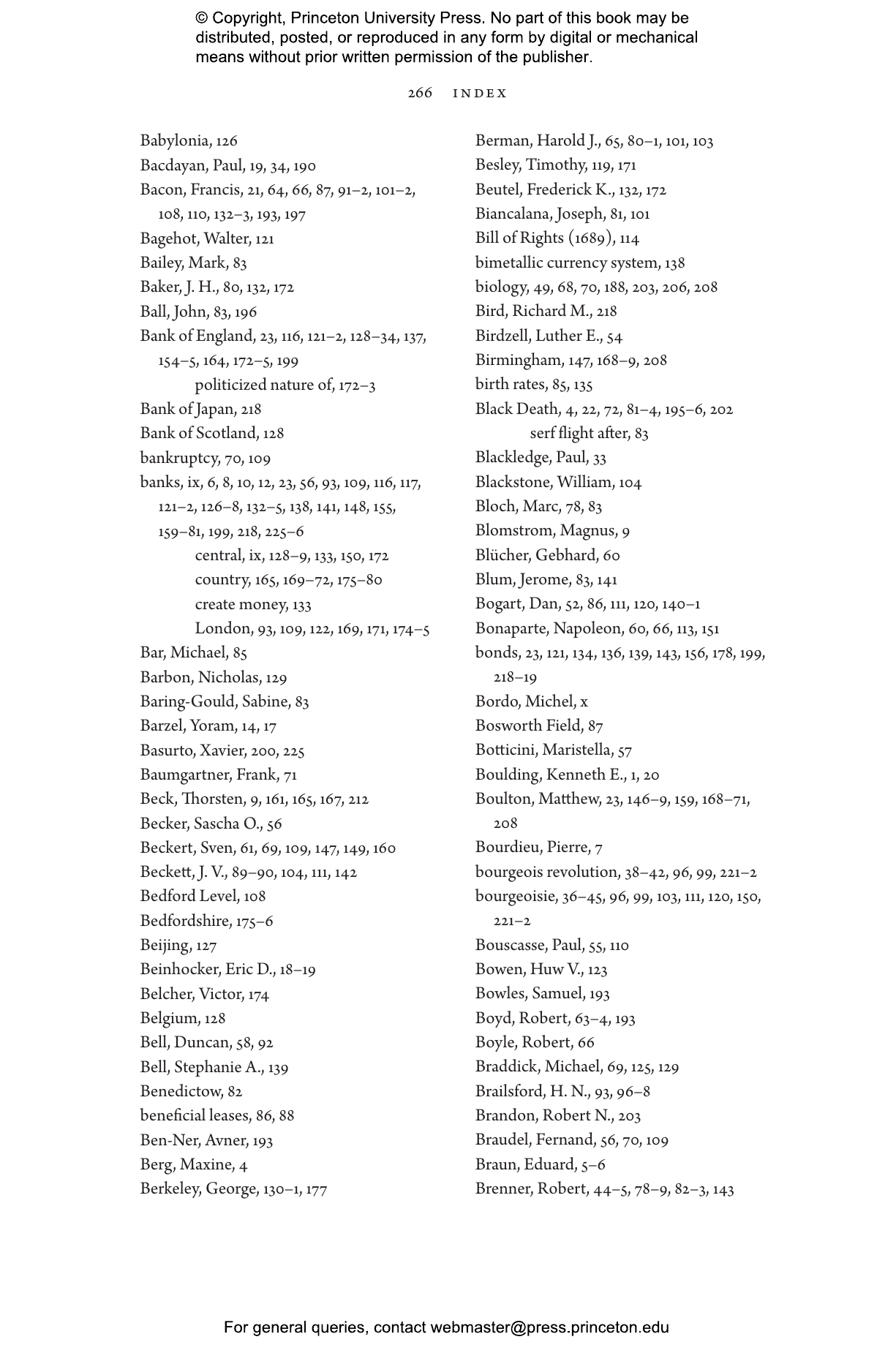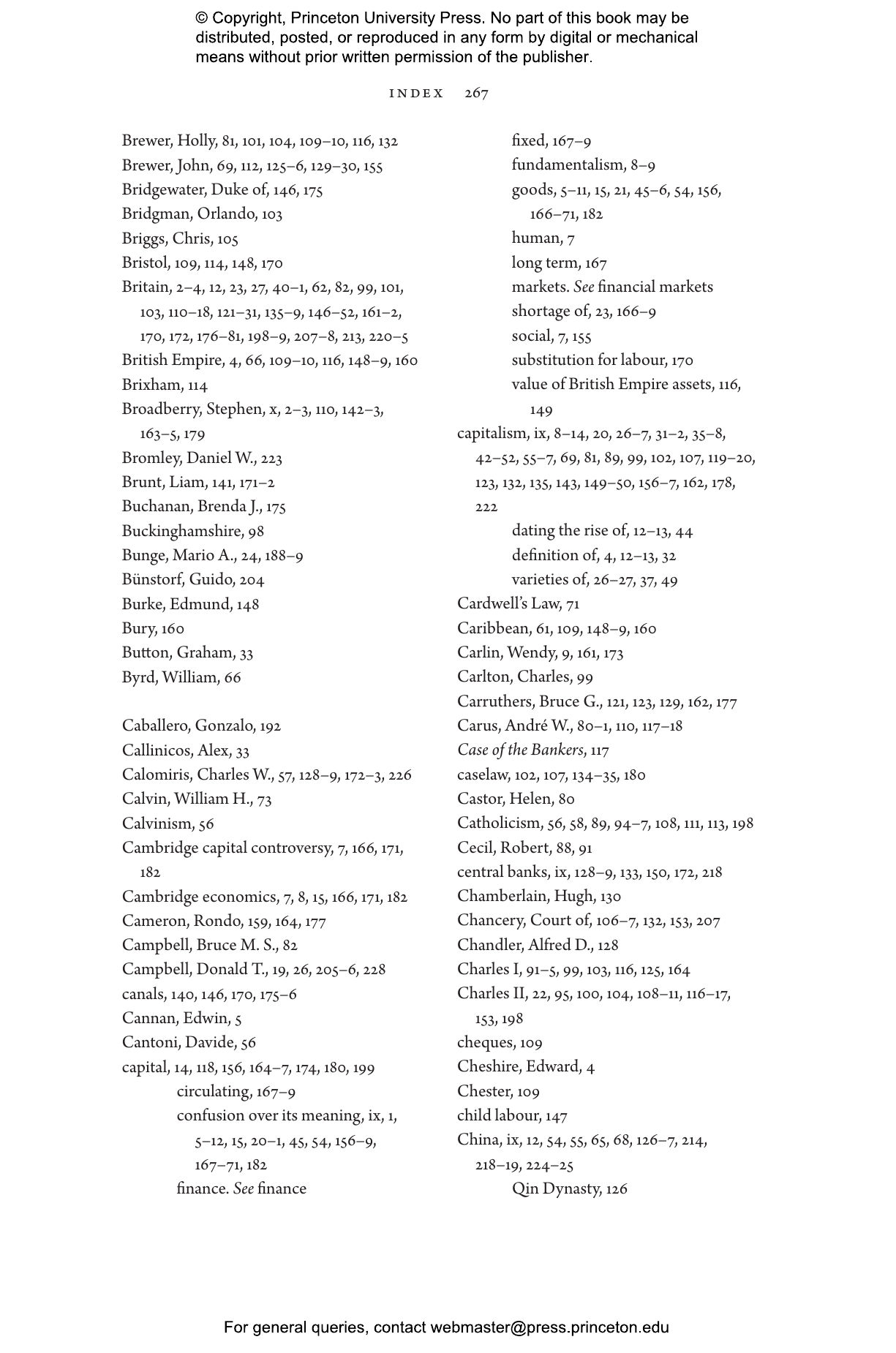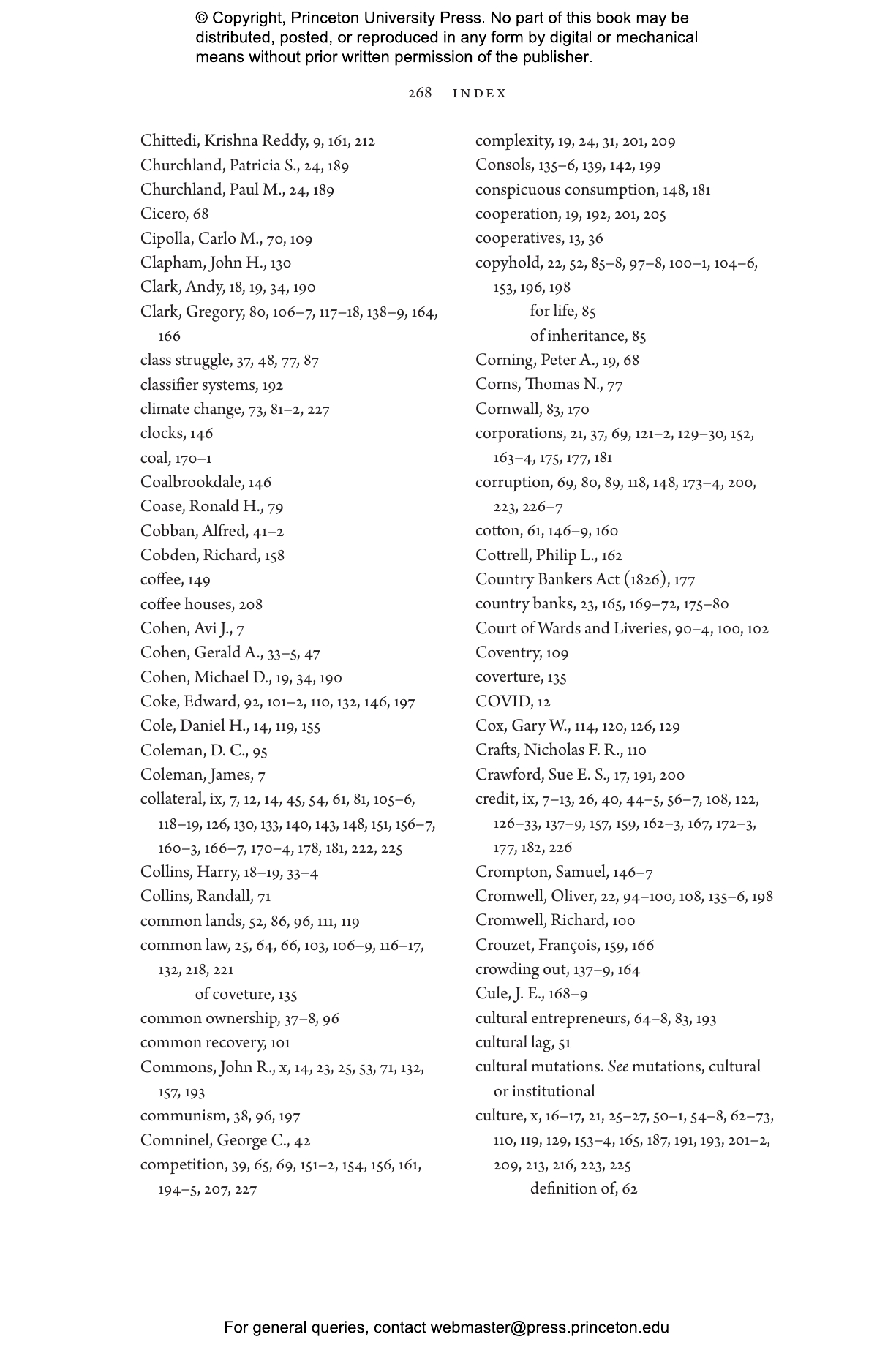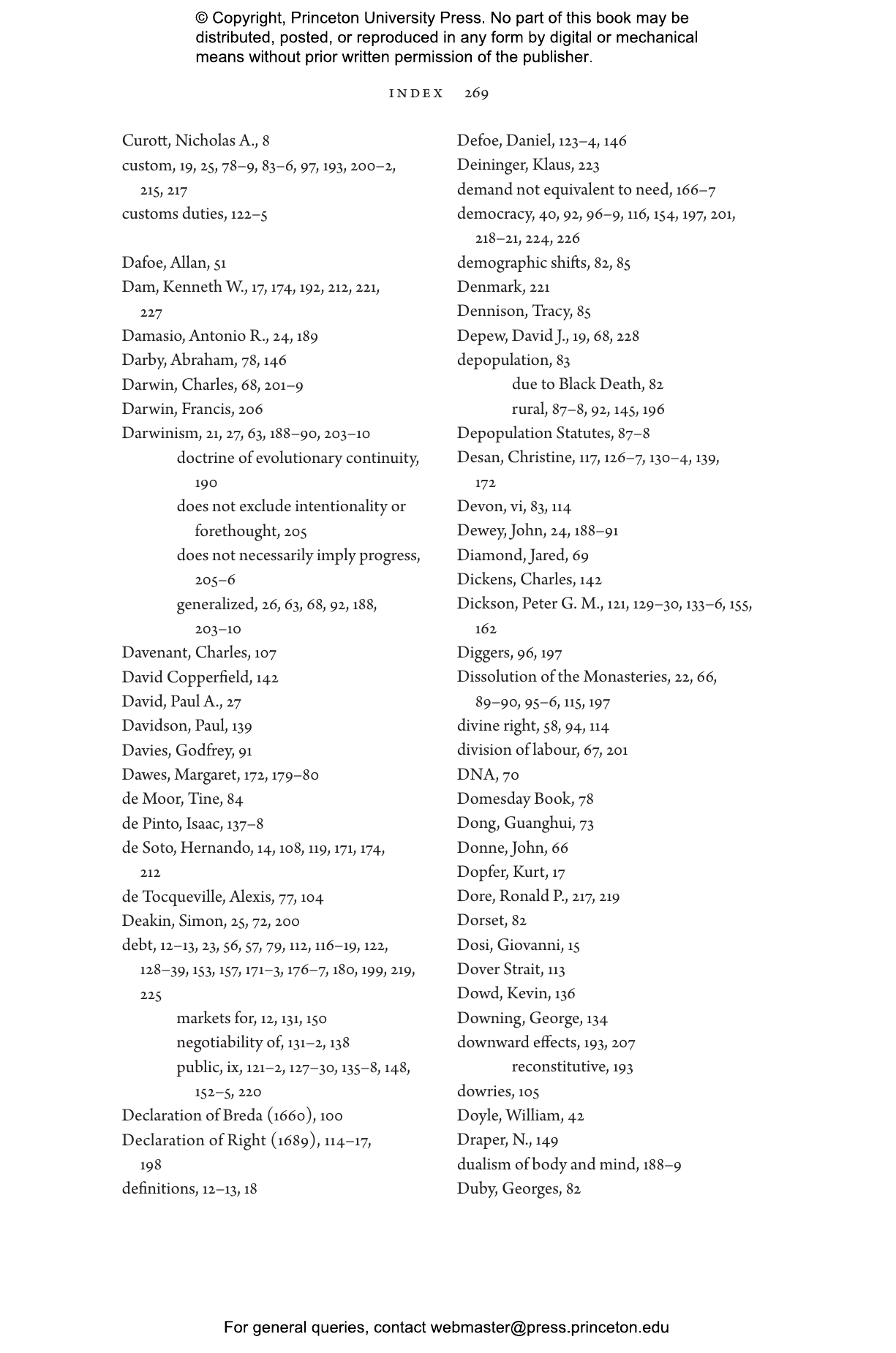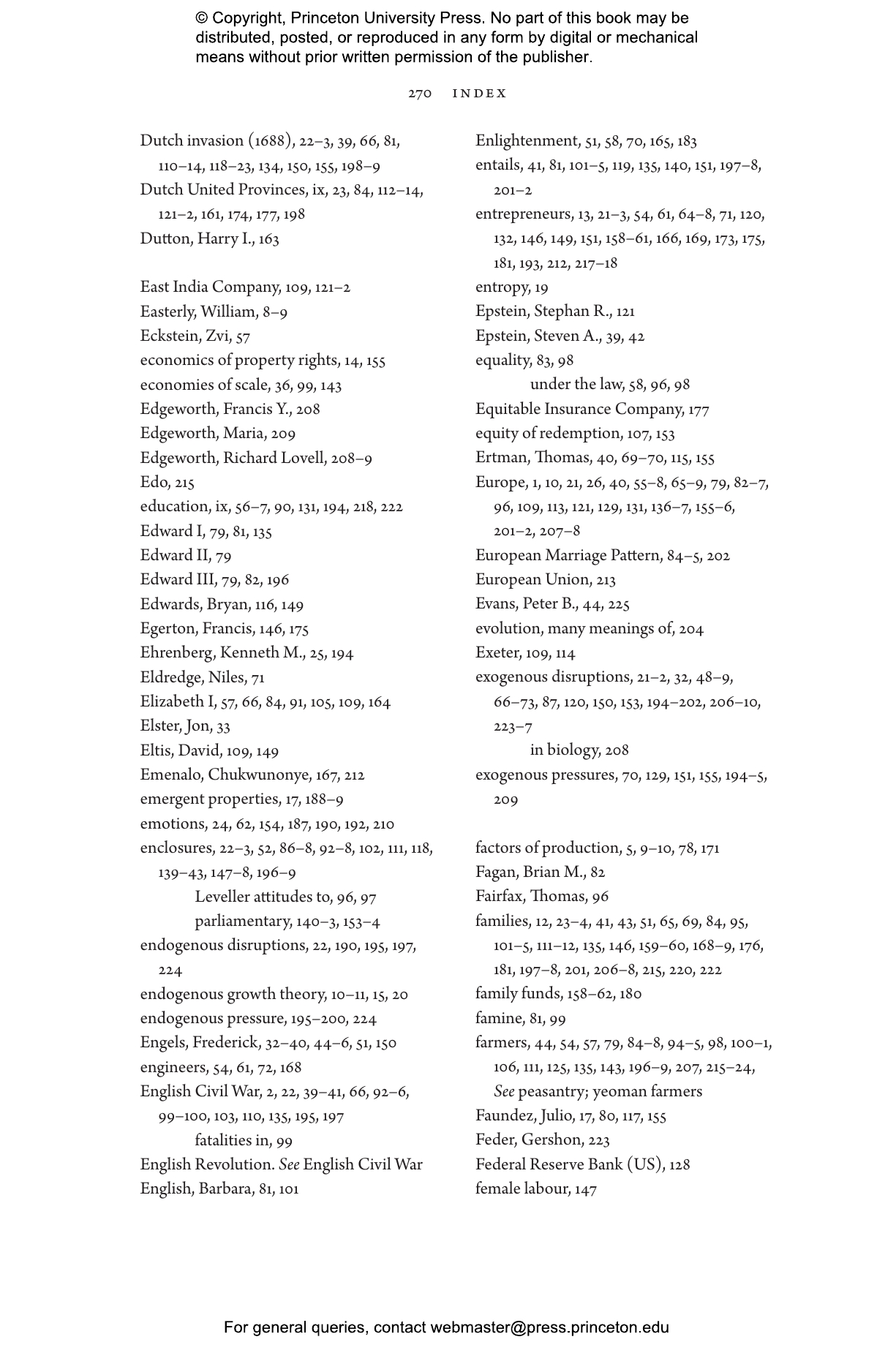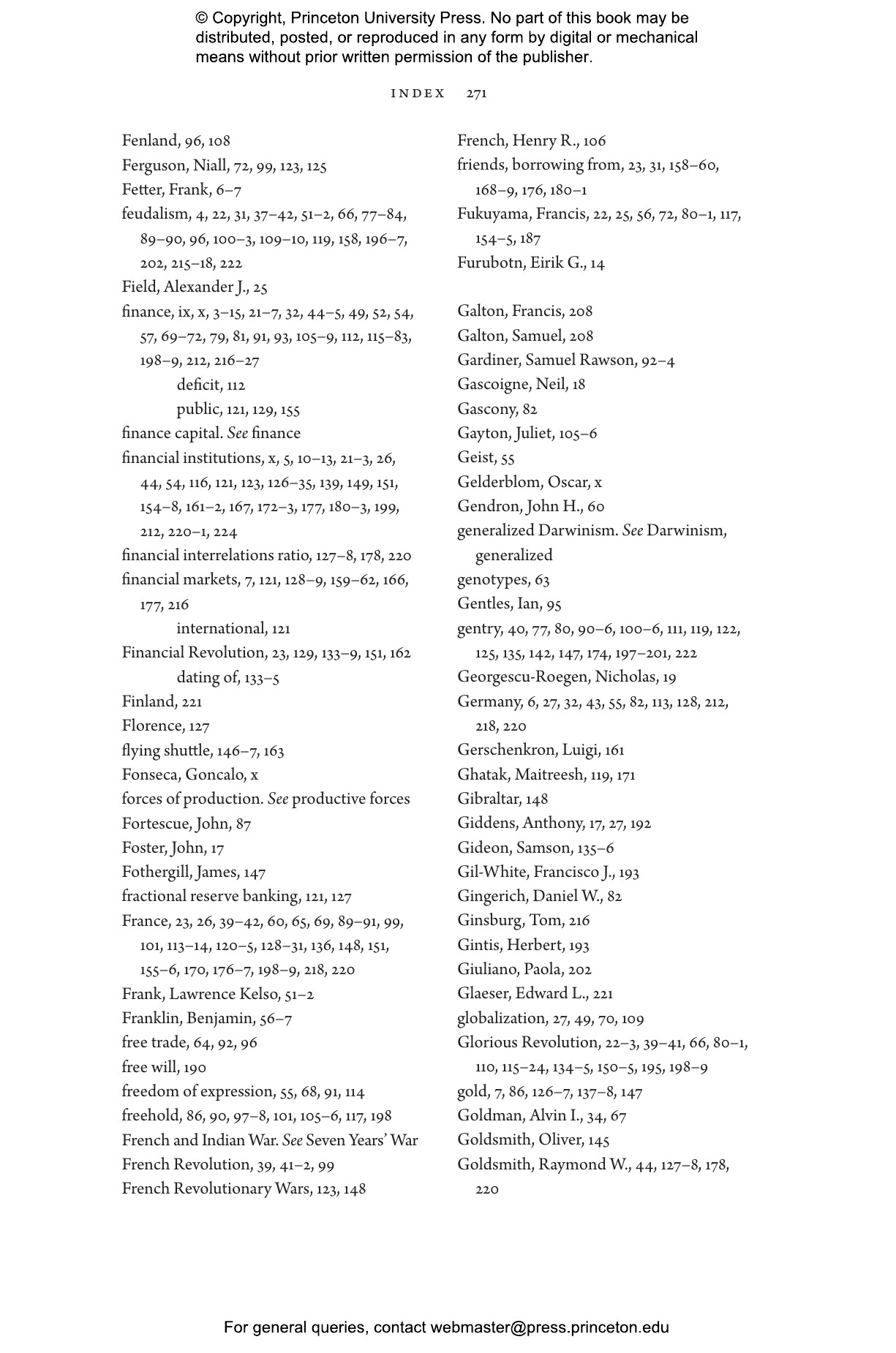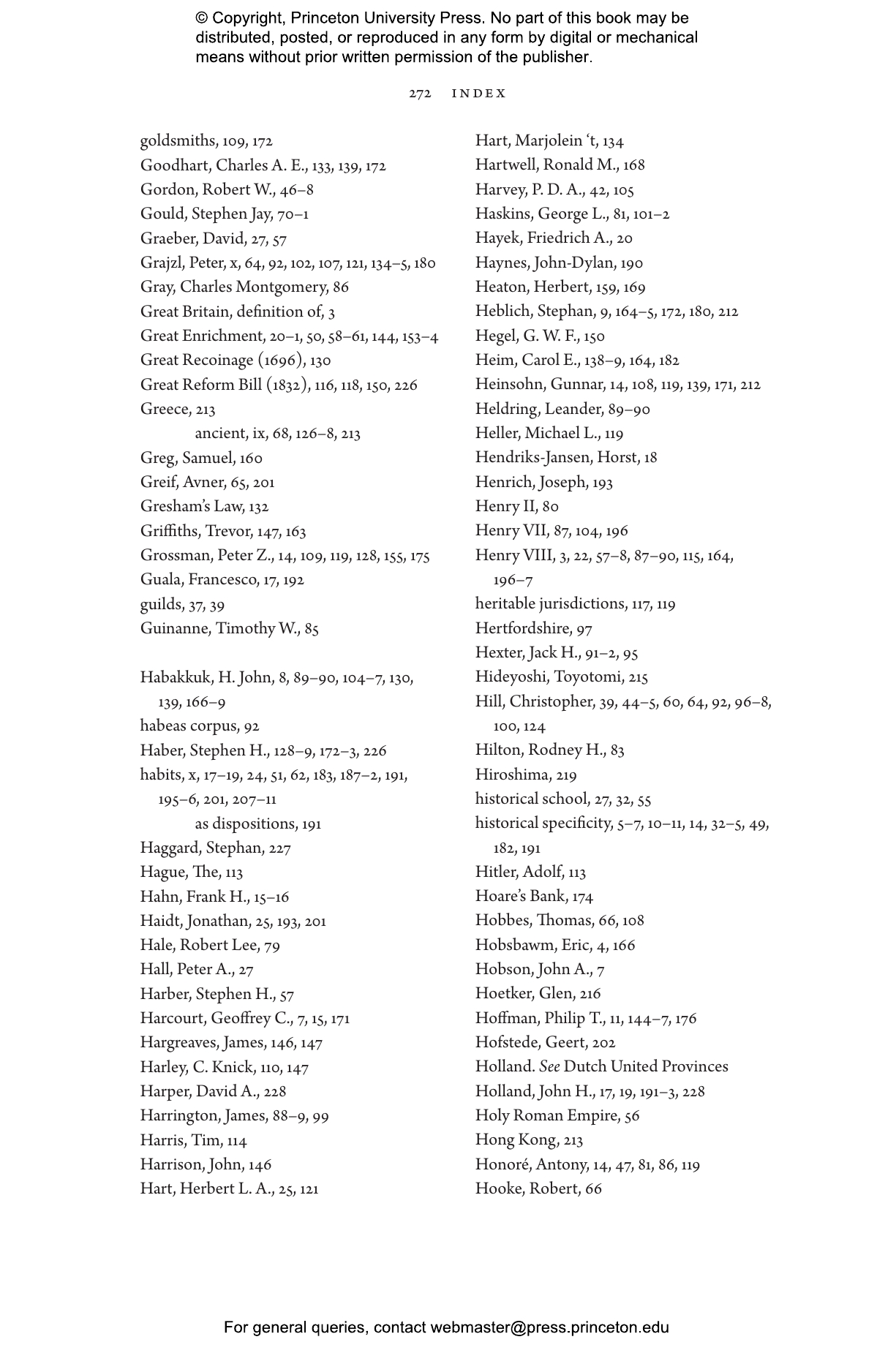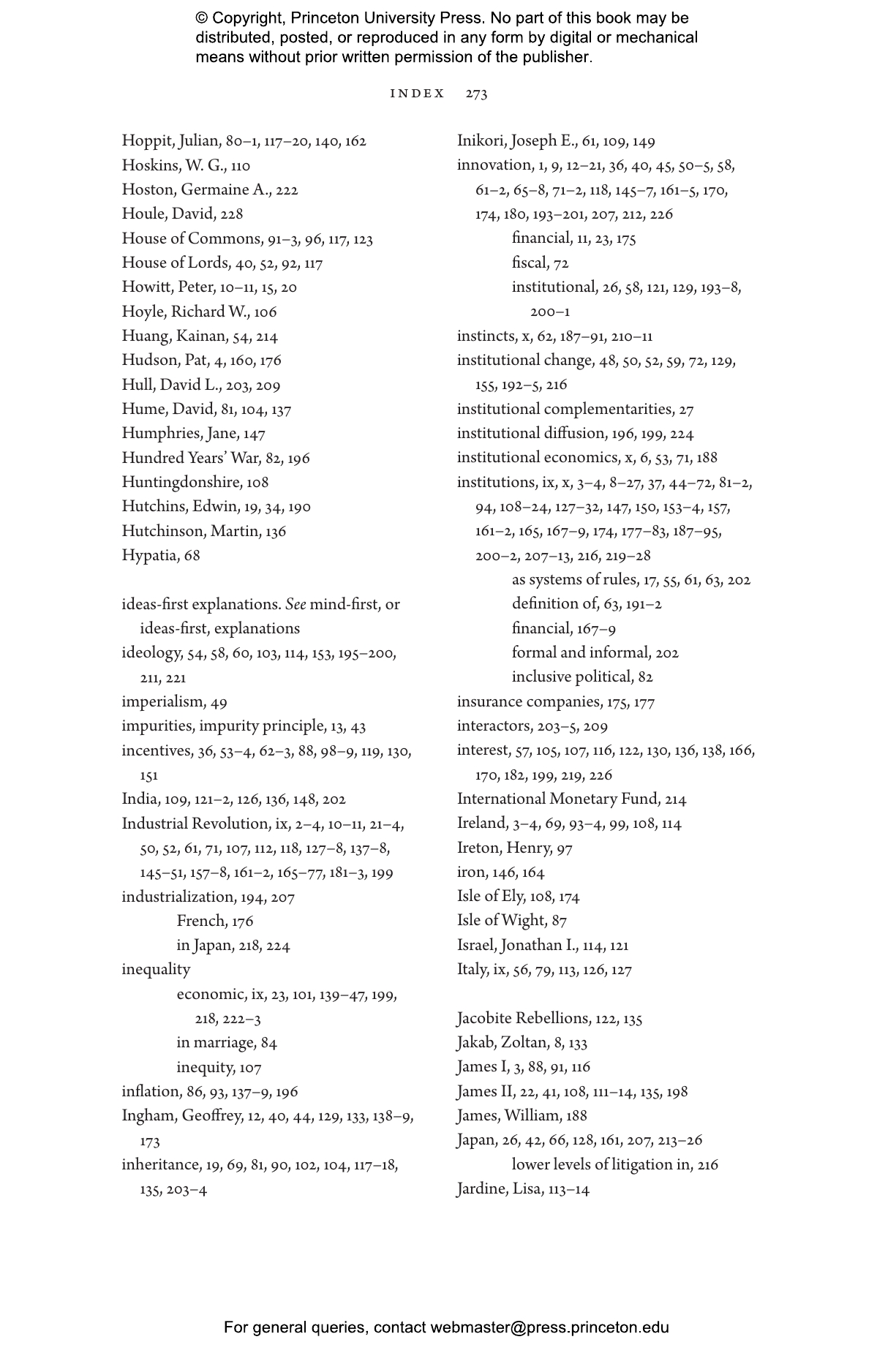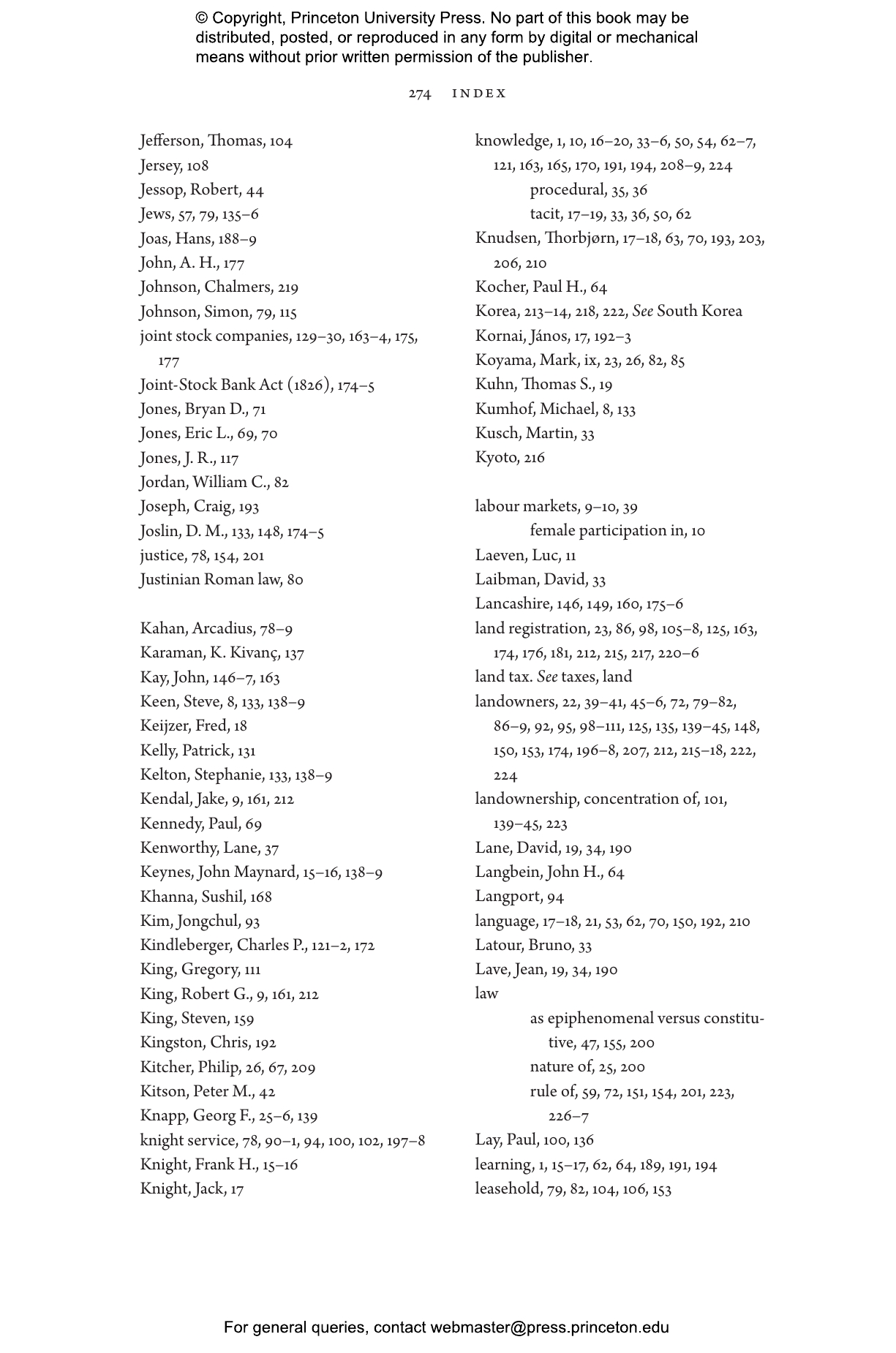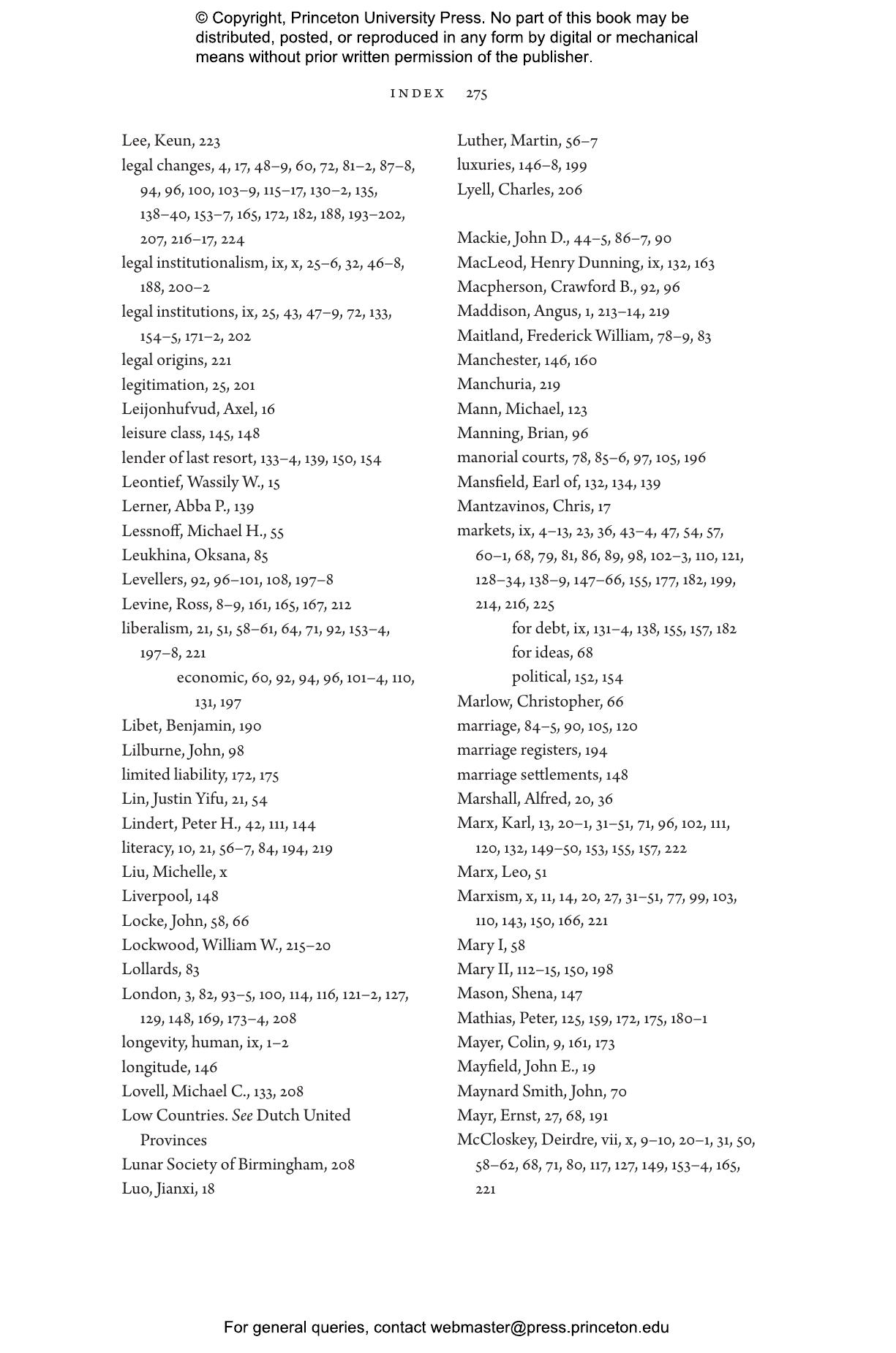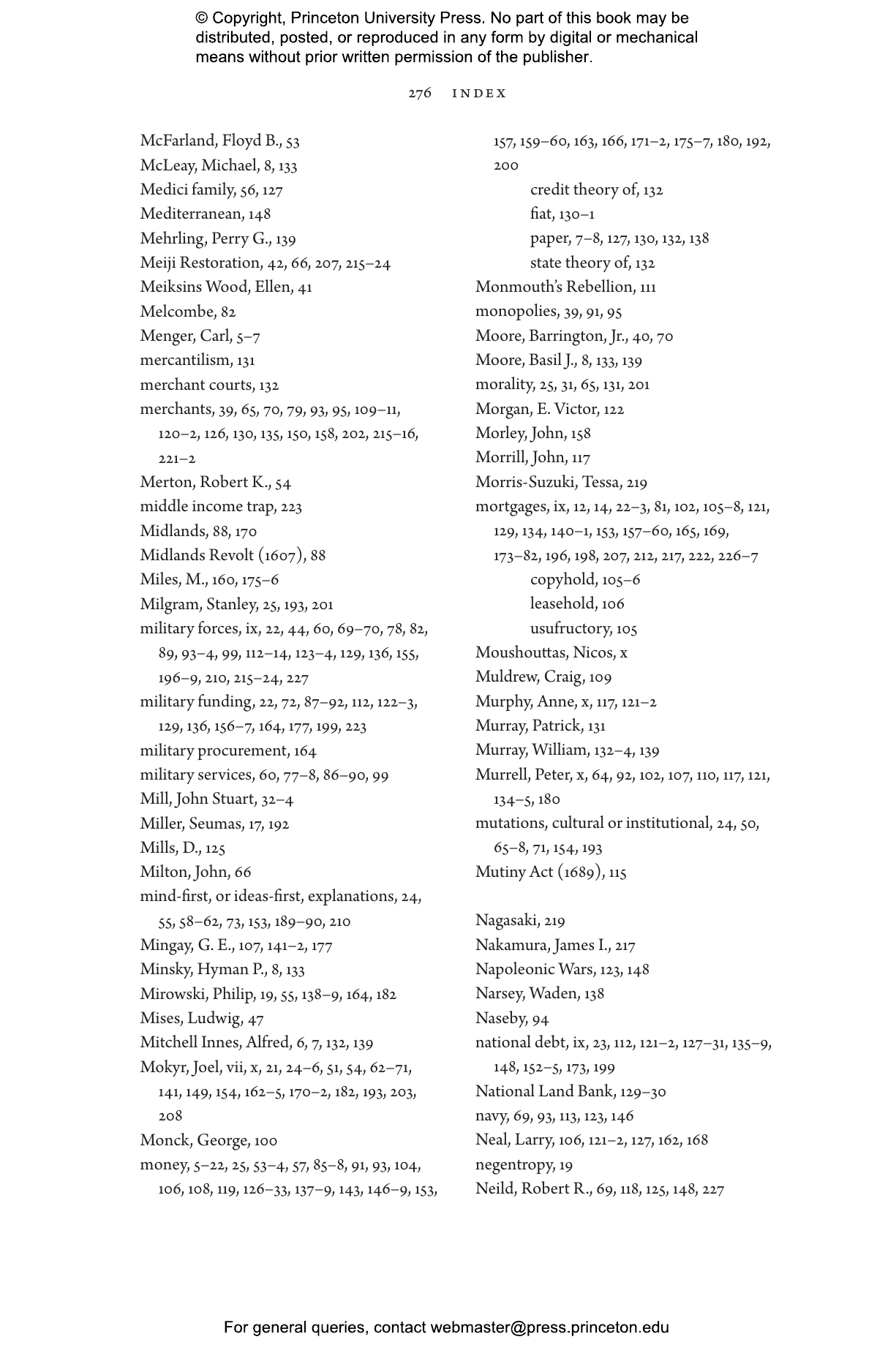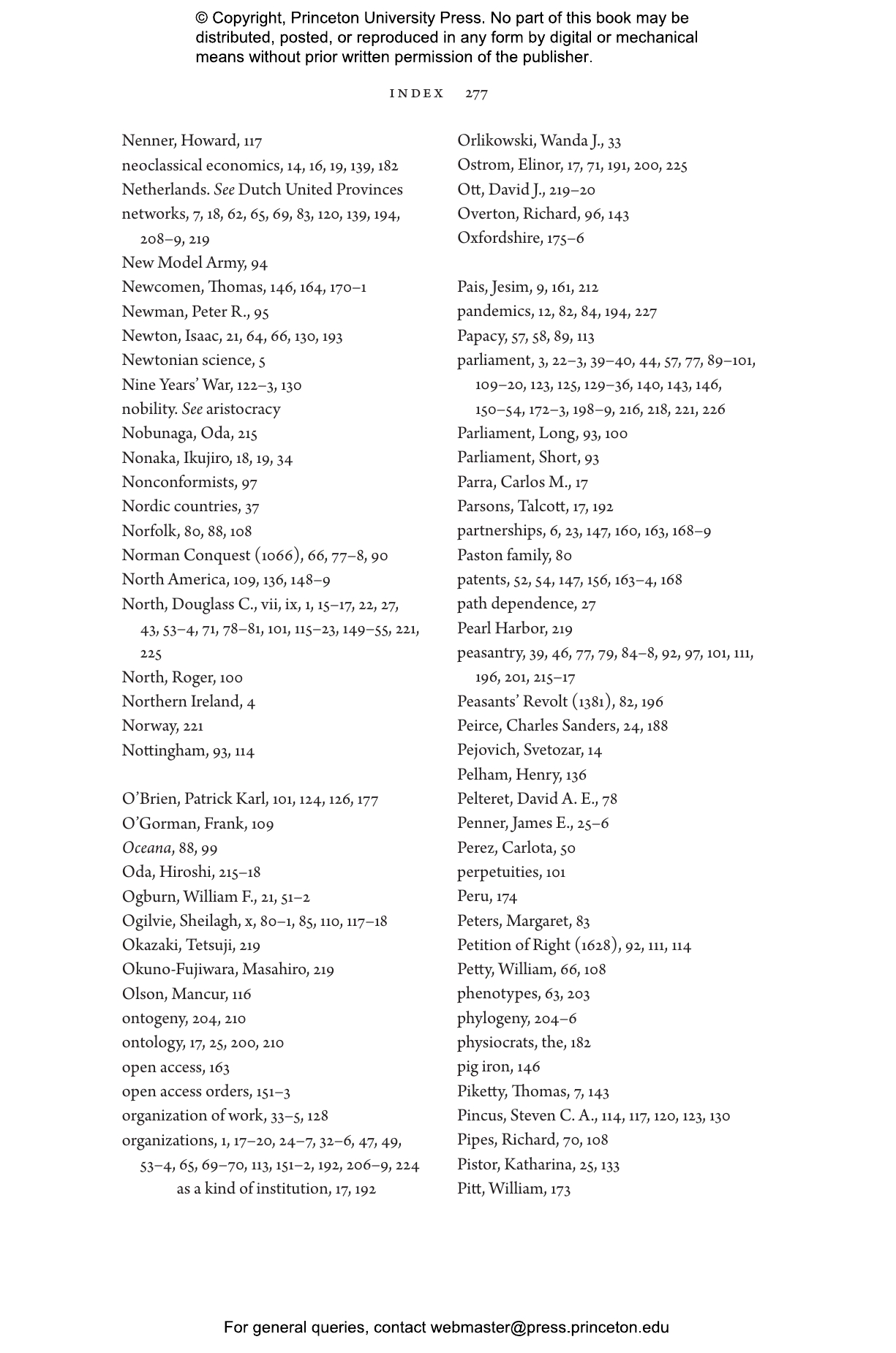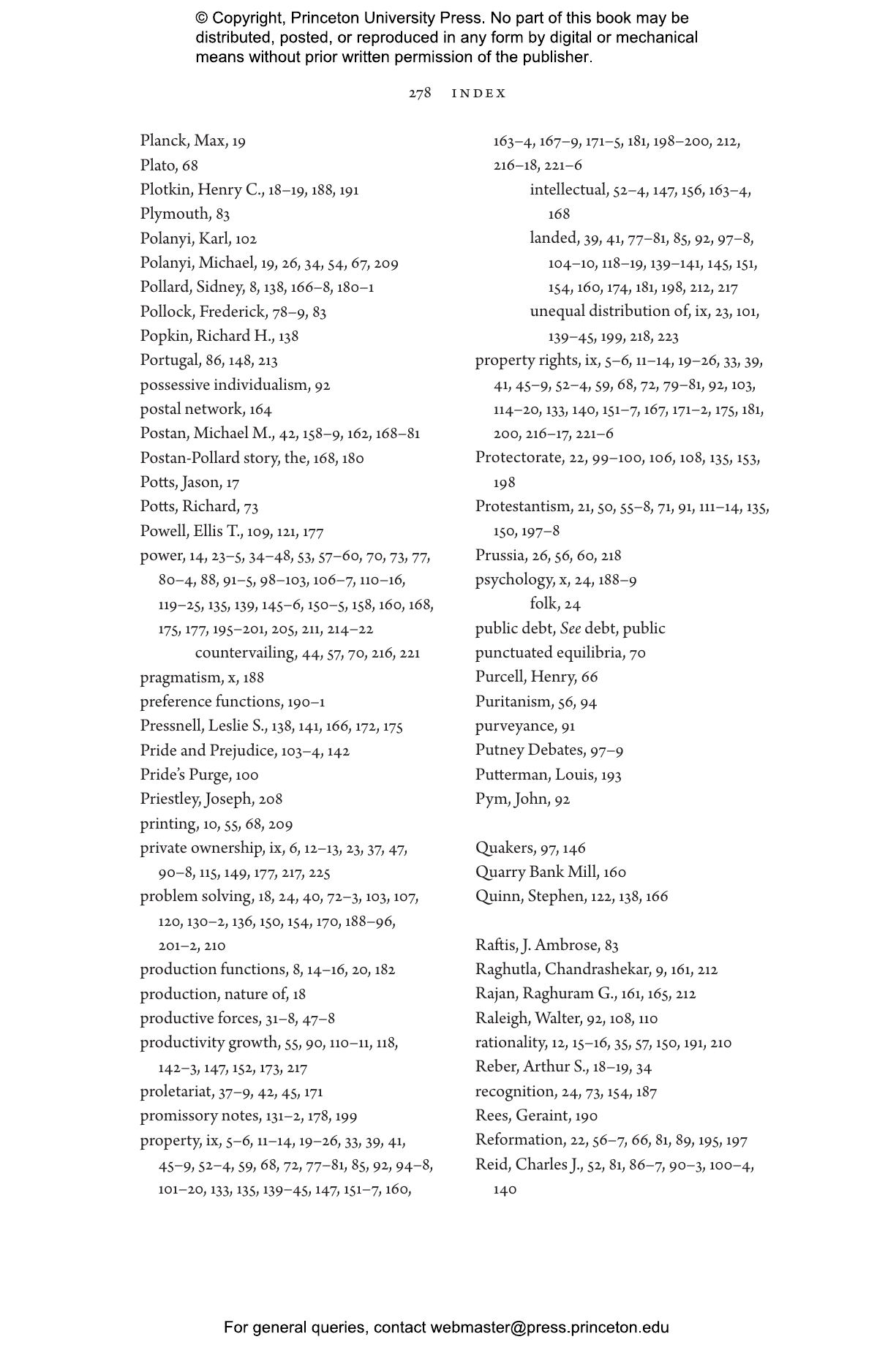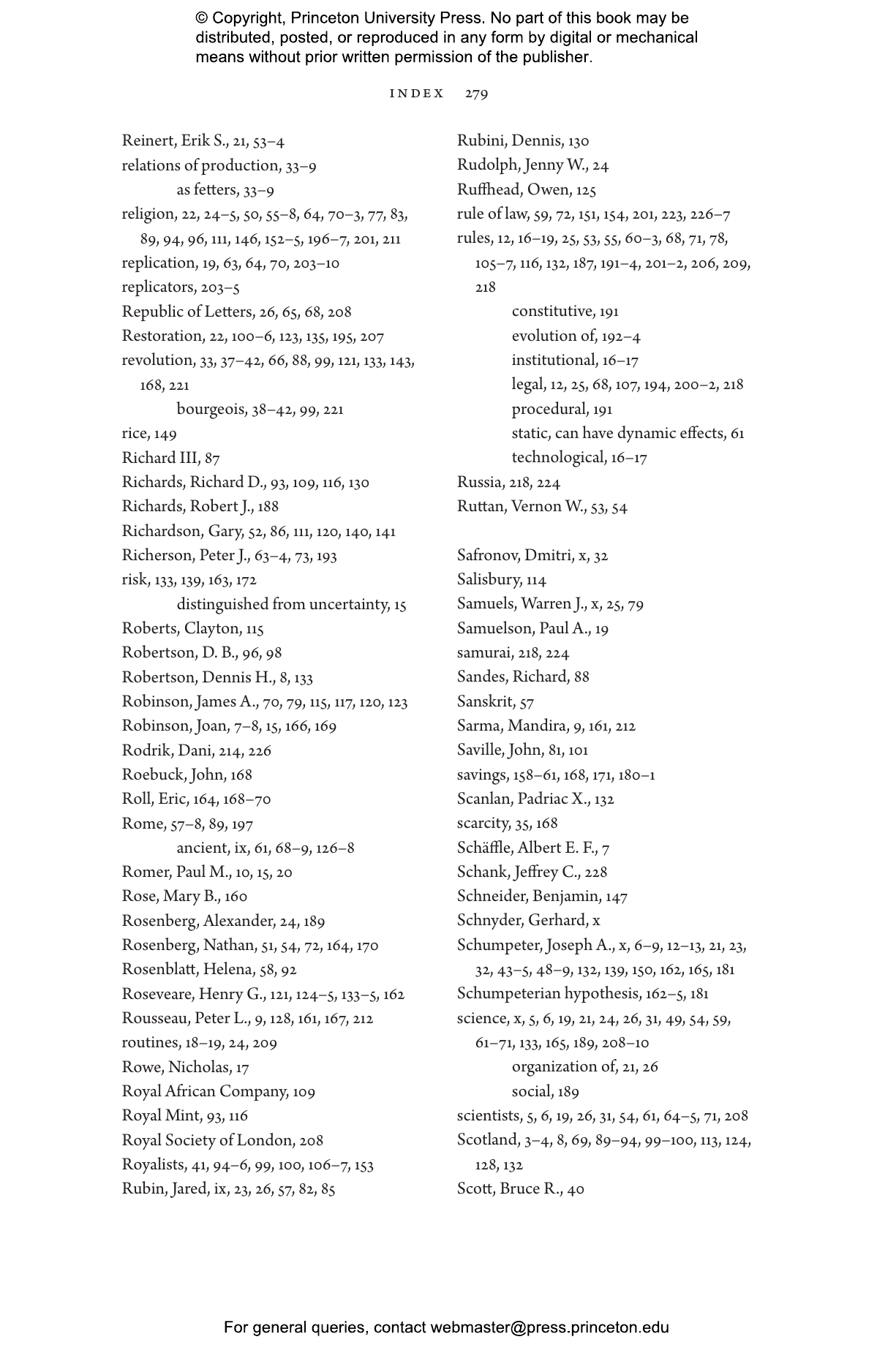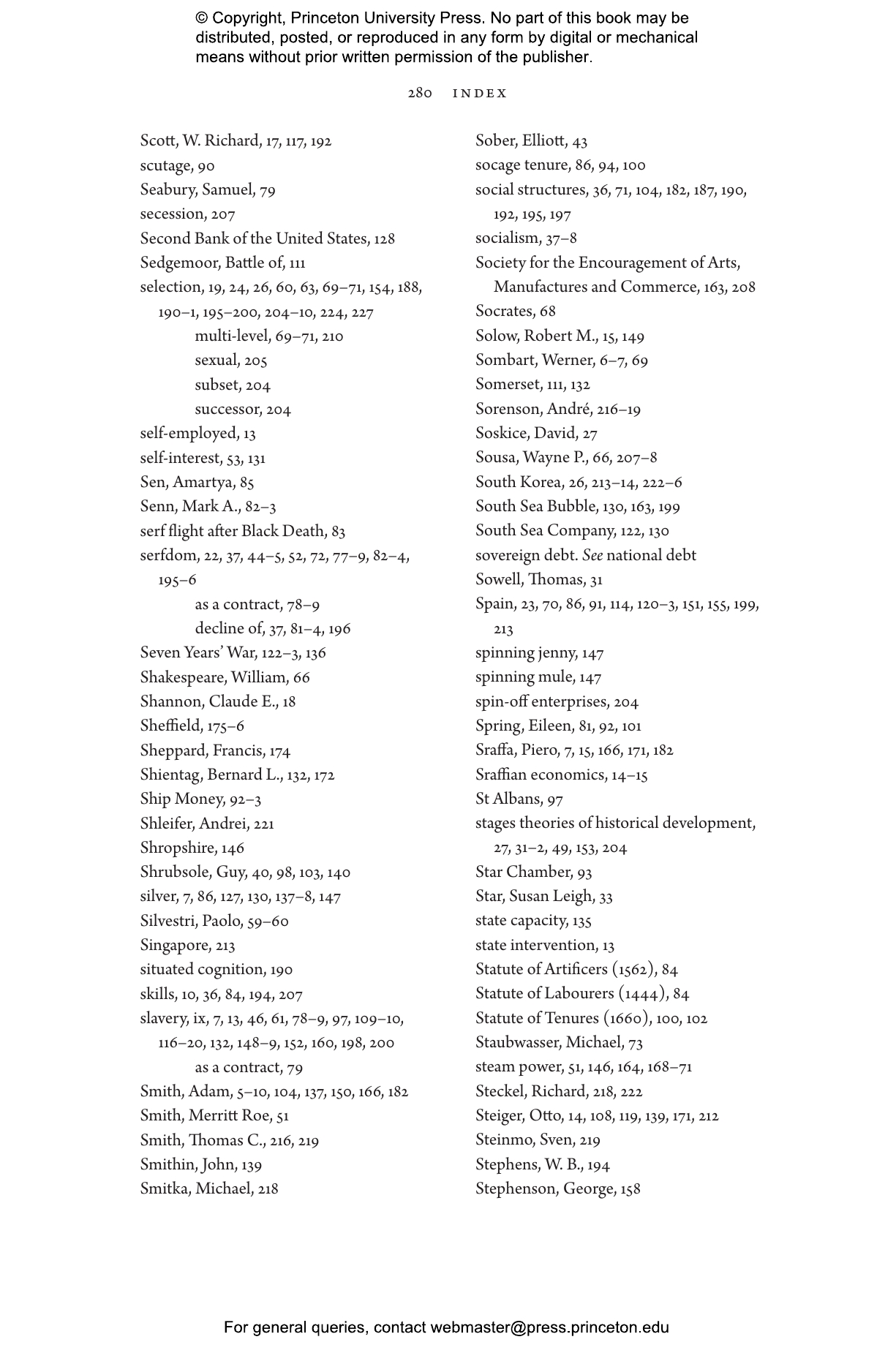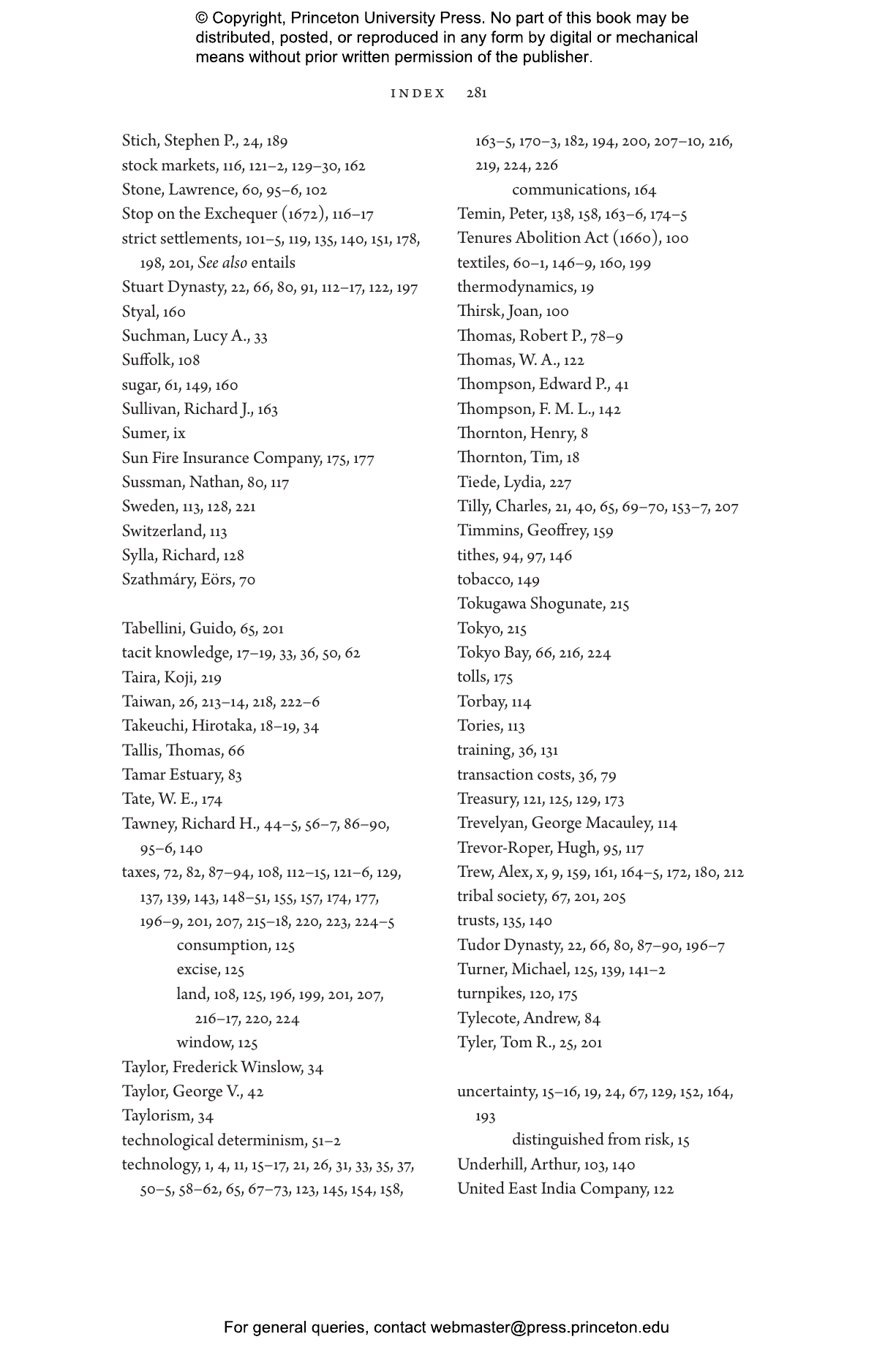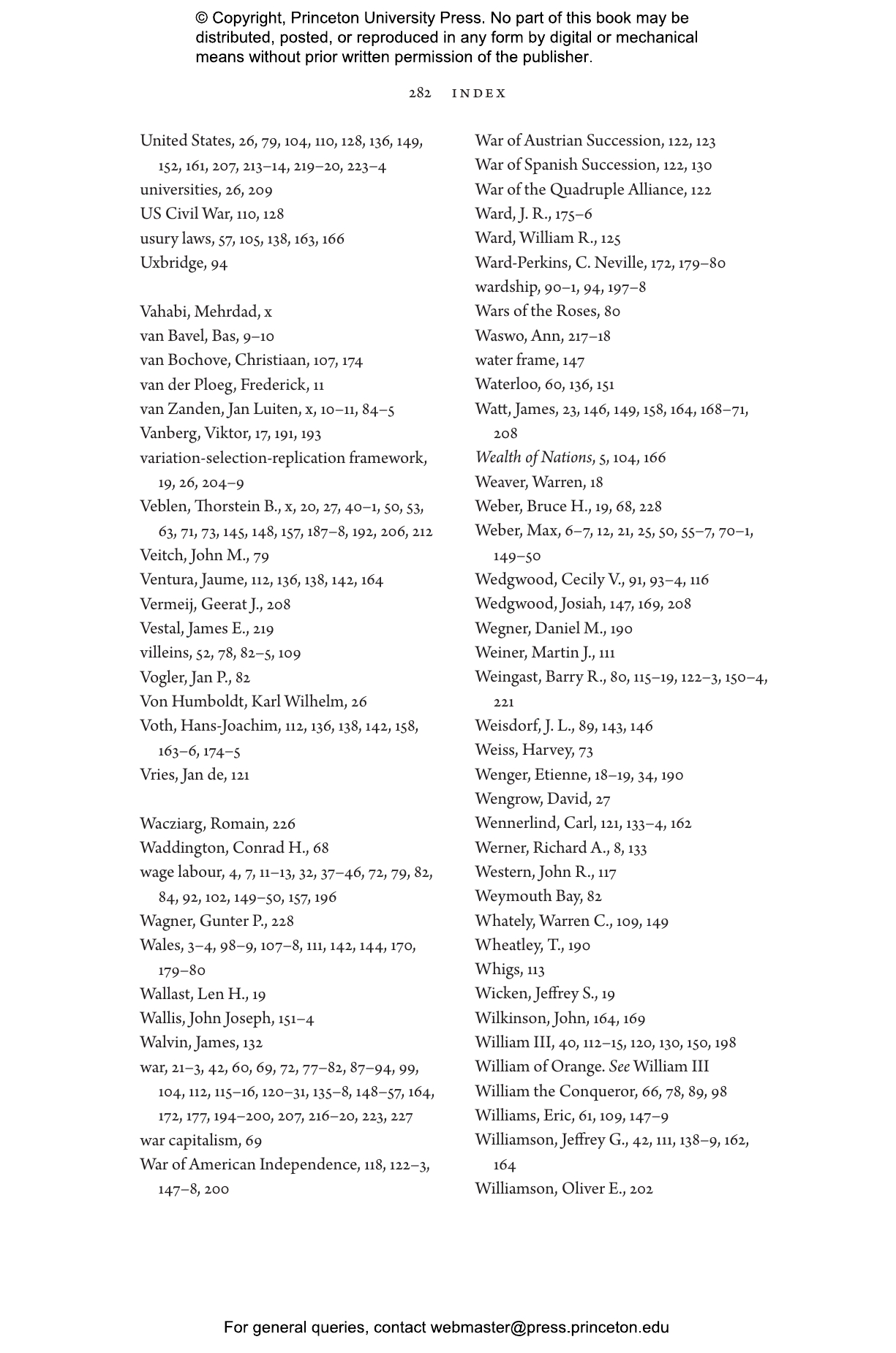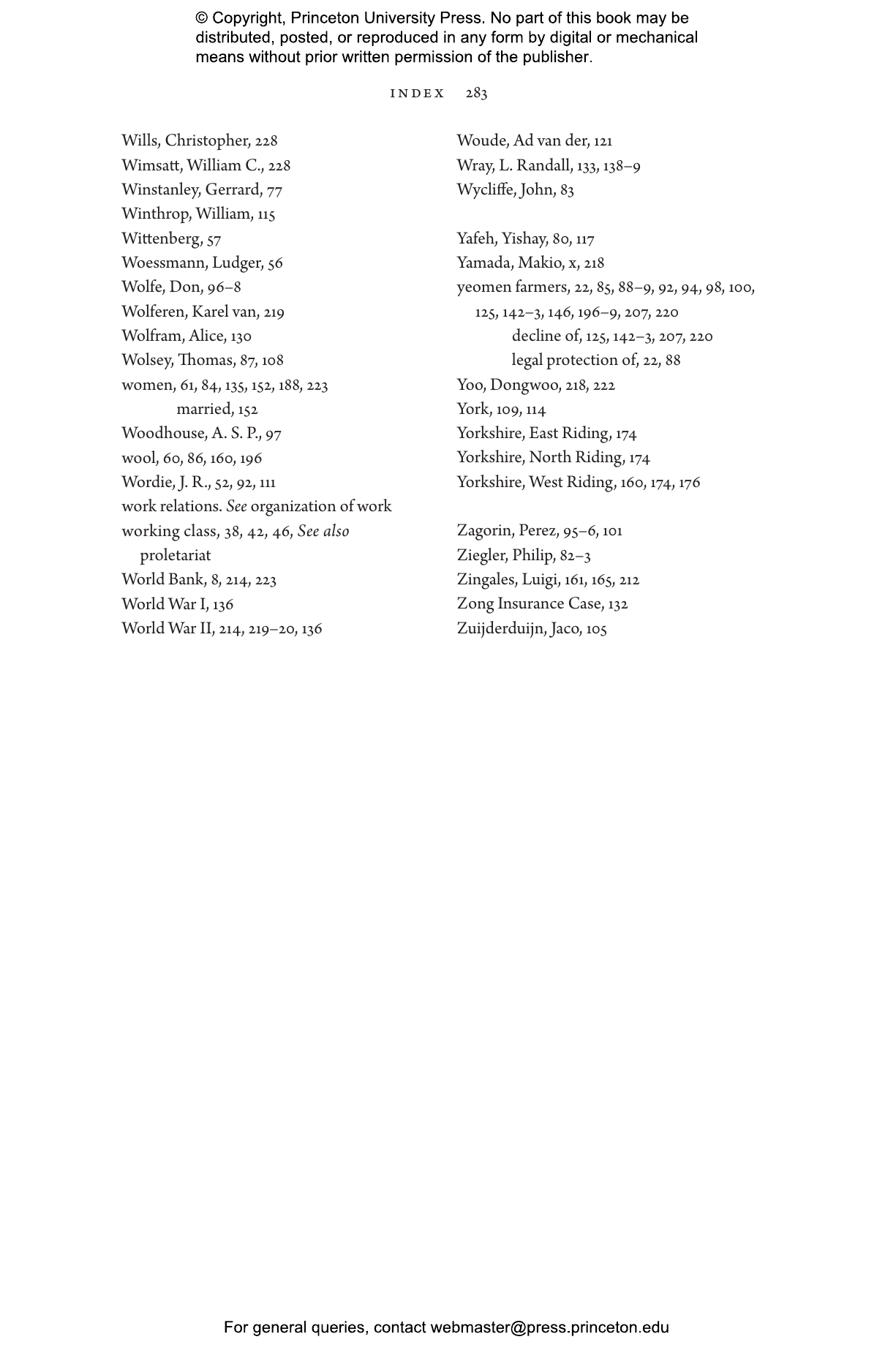Modern capitalism emerged in England in the eighteenth century and ushered in the Industrial Revolution, though scholars have long debated why. Some attribute the causes to technological change while others point to the Protestant ethic, liberal ideas, and cultural change. The Wealth of a Nation reveals the crucial developments in legal and financial institutions in the seventeenth and eighteenth centuries that help to explain this dramatic transformation.
Offering new perspectives on the early history of capitalism, Geoffrey Hodgson describes how, for the emerging British economy, pressures from without were as important as evolution from within. He shows how intensive military conflicts overseas forced the state to undertake major financial, administrative, legal, and political reforms. The resulting institutional changes not only bolstered the British war machine—they fostered the Industrial Revolution. Hodgson traces how Britain’s war capitalism led to an expansion of its empire and a staggering increase in the slave trade, and how the institutional innovations that radically transformed the British economy were copied and adapted by countries around the world.
A landmark work of scholarship, The Wealth of a Nation sheds light on how external factors such as war gave rise to institutional arrangements that facilitated finance, banking, and investment, and offers a conceptual framework for further research into the origins and consolidation of capitalism in England.
Geoffrey M. Hodgson is professor emeritus in management at Loughborough University London and editor-in-chief of the Journal of Institutional Economics. His many books include Liberal Solidarity, Conceptualizing Capitalism, and Darwin’s Conjecture.
"Geoffrey M. Hodgson’s book is a groundbreaking, in-depth analysis of the ever-discussed history of English capitalism. Well-written and accessible even to broader readers, the book contributes actively to the ongoing debate about the rise of modern capitalism in Europe and worldwide."—Giampaolo Conte, The Journal of European Economic History
"Hodgson’s book is a substantial contribution to the field of economic history, providing a nuanced understanding of the complex interplay between state power, military needs, financial innovations and the institutional foundations of capitalism."—Mugur Tolici, Central Banking
“In the course of the eighteenth century, a paradigm shift in the order of English economic life occurred. New financial institutions emerged from the exigencies of war making and imperial expansion—institutions that would help usher in modern industrial capitalism. Offering a powerful rethinking of one of the core questions of human history, Hodgson bridges the divide between economics and history in a dazzling display of historical detail and theoretical reflection. A must-read for anyone interested in economic history.”—Sven Beckert, author of Empire of Cotton
“Geoffrey Hodgson’s history of capitalism is as rich and wide-ranging as the phenomenon it sets out to explain. Recentering critical developments in money and finance, The Wealth of a Nation illuminates the dramatic and distinctive quality of our modern political economy.”—Christine Desan, Harvard Law School
“Hodgson gives us a fresh and thoughtful take on a central question in economic history—why Britain developed first. He steers clear of monocausal explanations, gives due weight to both market and state, and makes important points about how institutions compete and adapt.”—Sheilagh Ogilvie, author of The European Guilds: An Economic Analysis
“Hodgson provides a much-needed critical synthesis of the many disparate theories about England’s early economic rise and an entirely new take on the emergence of capitalism more broadly. His insights bring intellectual clarity to the notion of capital that economists and social scientists have been craving. This foundational and very readable work will influence generations of scholars and students.”—Peter Grajzl, Washington and Lee University
“A compelling overview of British economic history emphasizing how important it is to analyze institutional development using an evolutionary framework. Students and scholars alike have much to learn from Geoffrey Hodgson.”—Peter Murrell, University of Maryland
